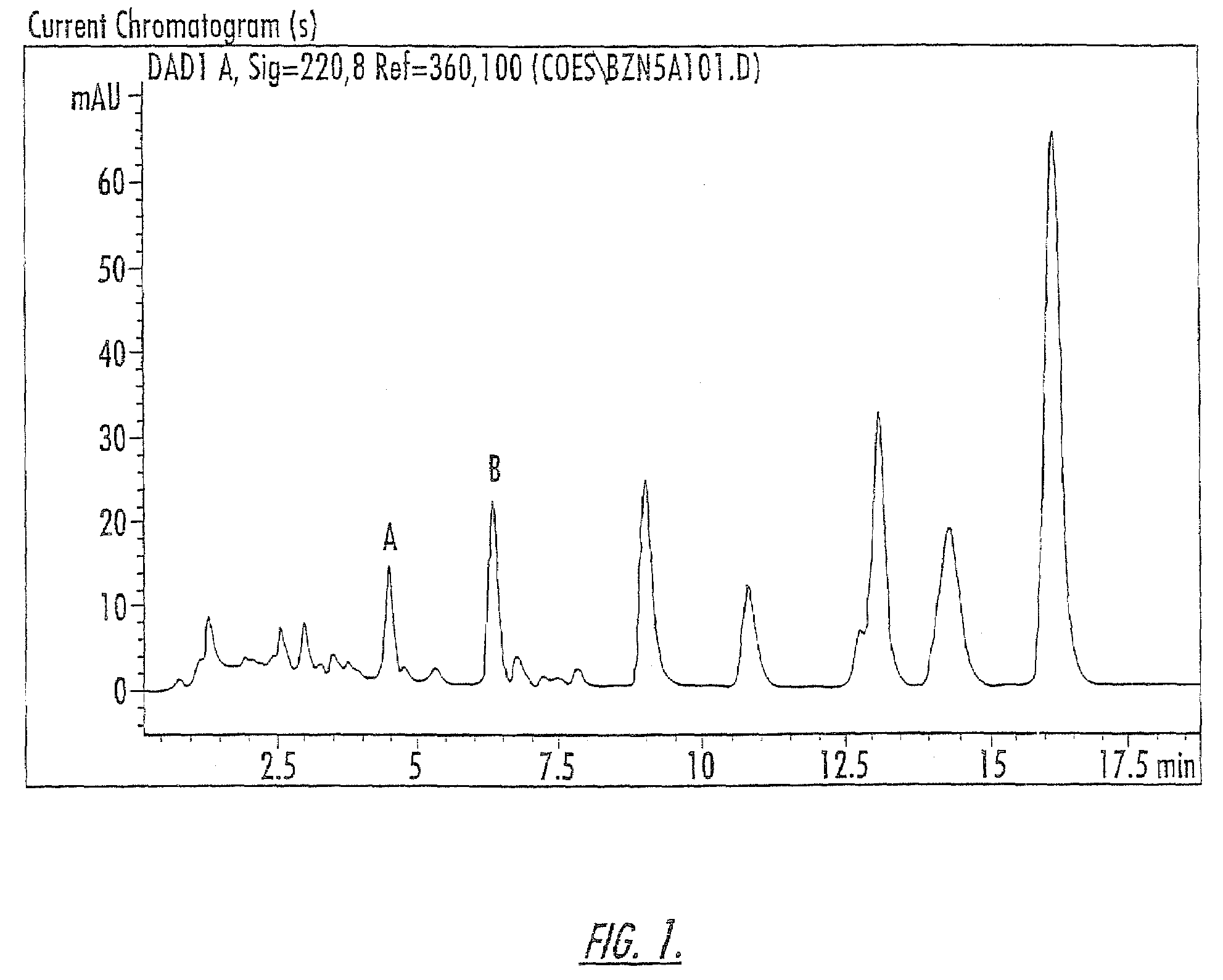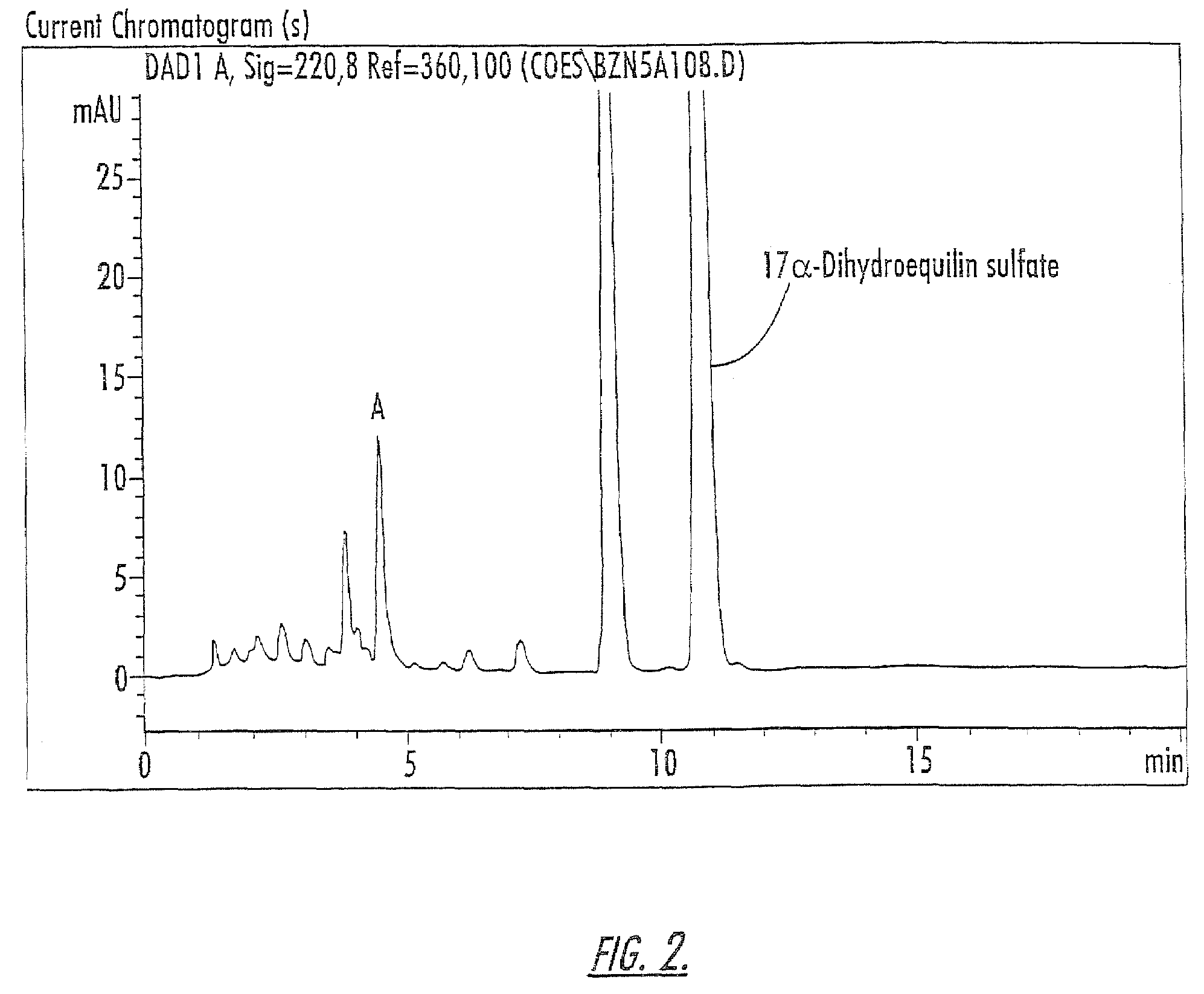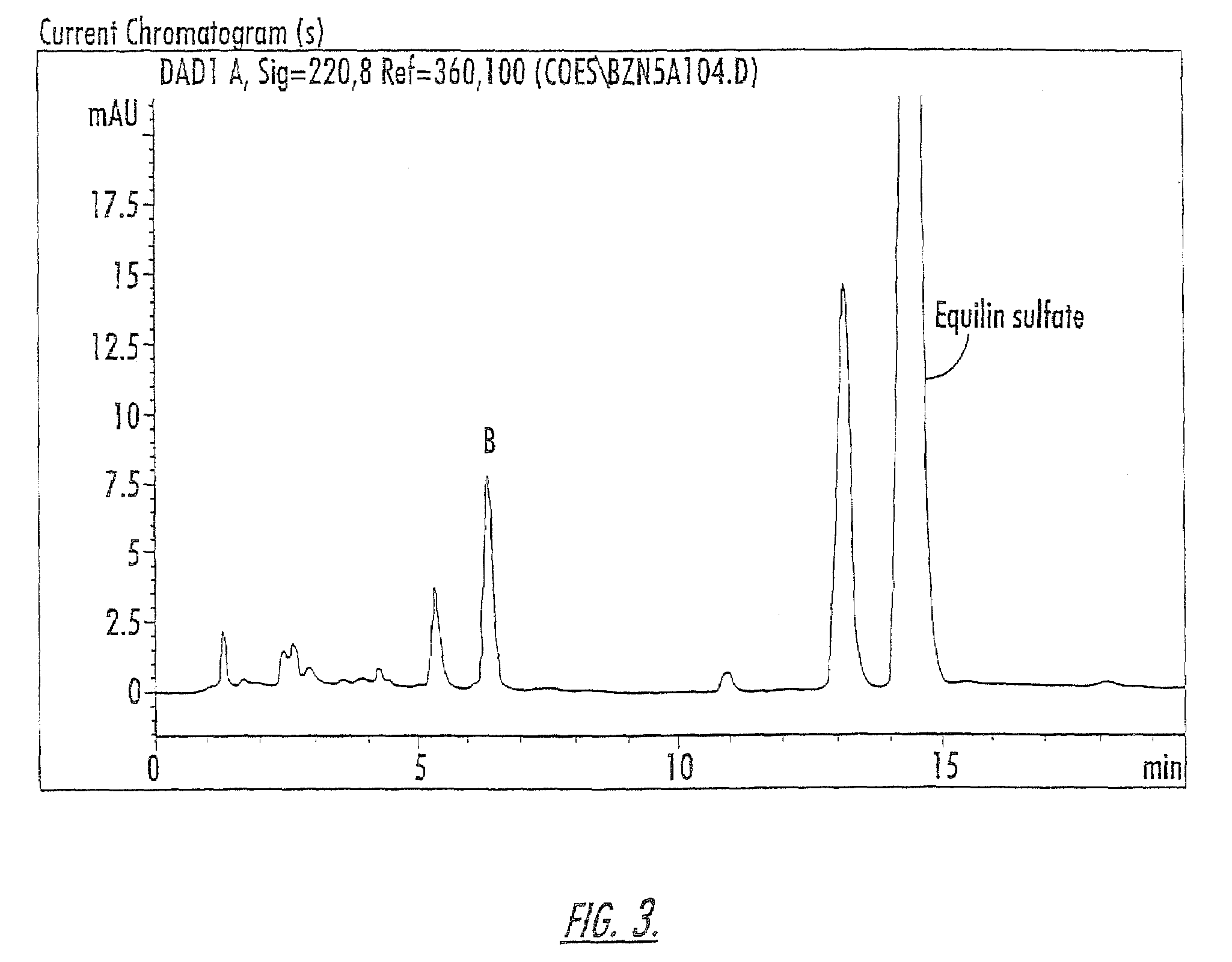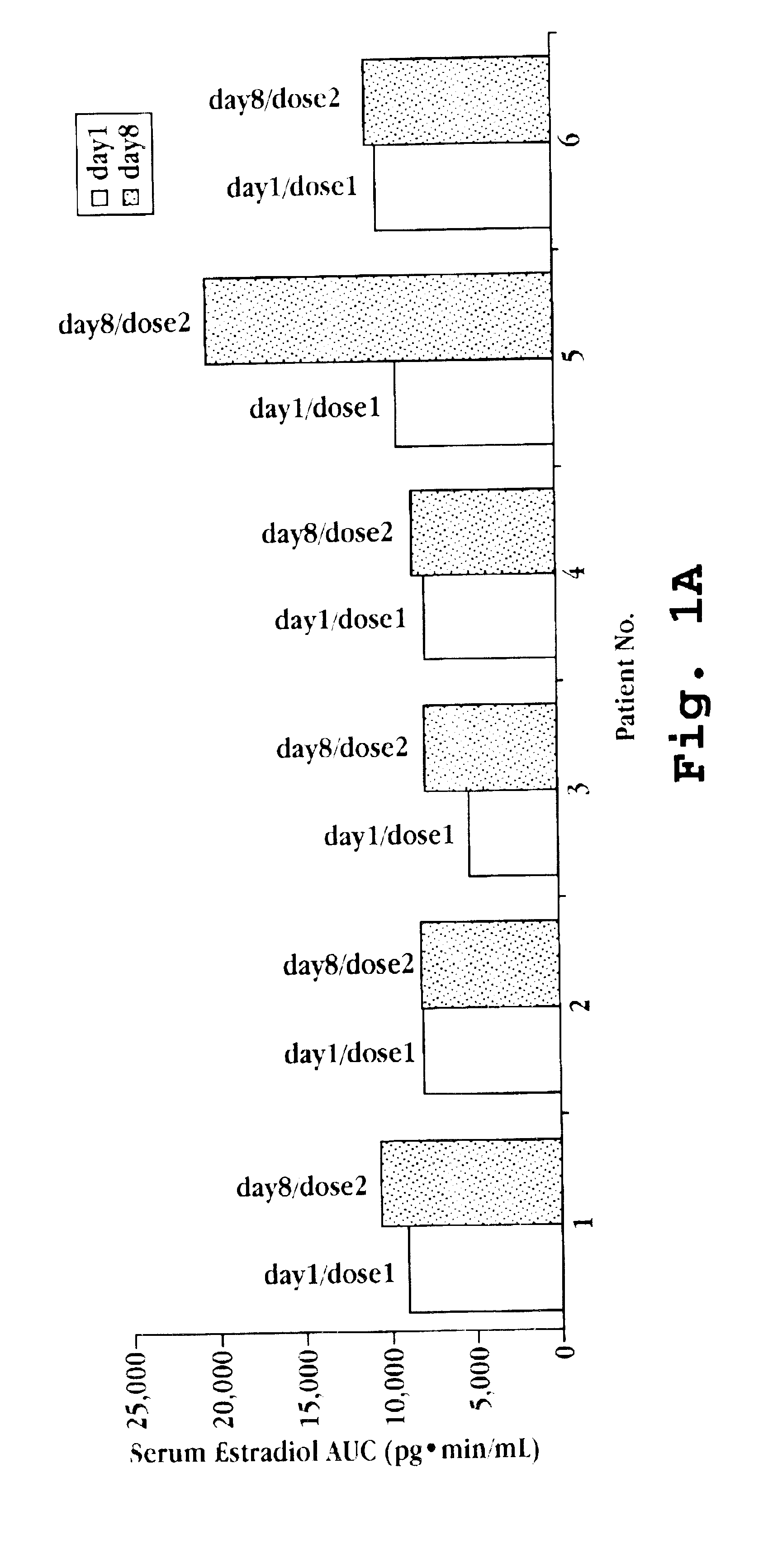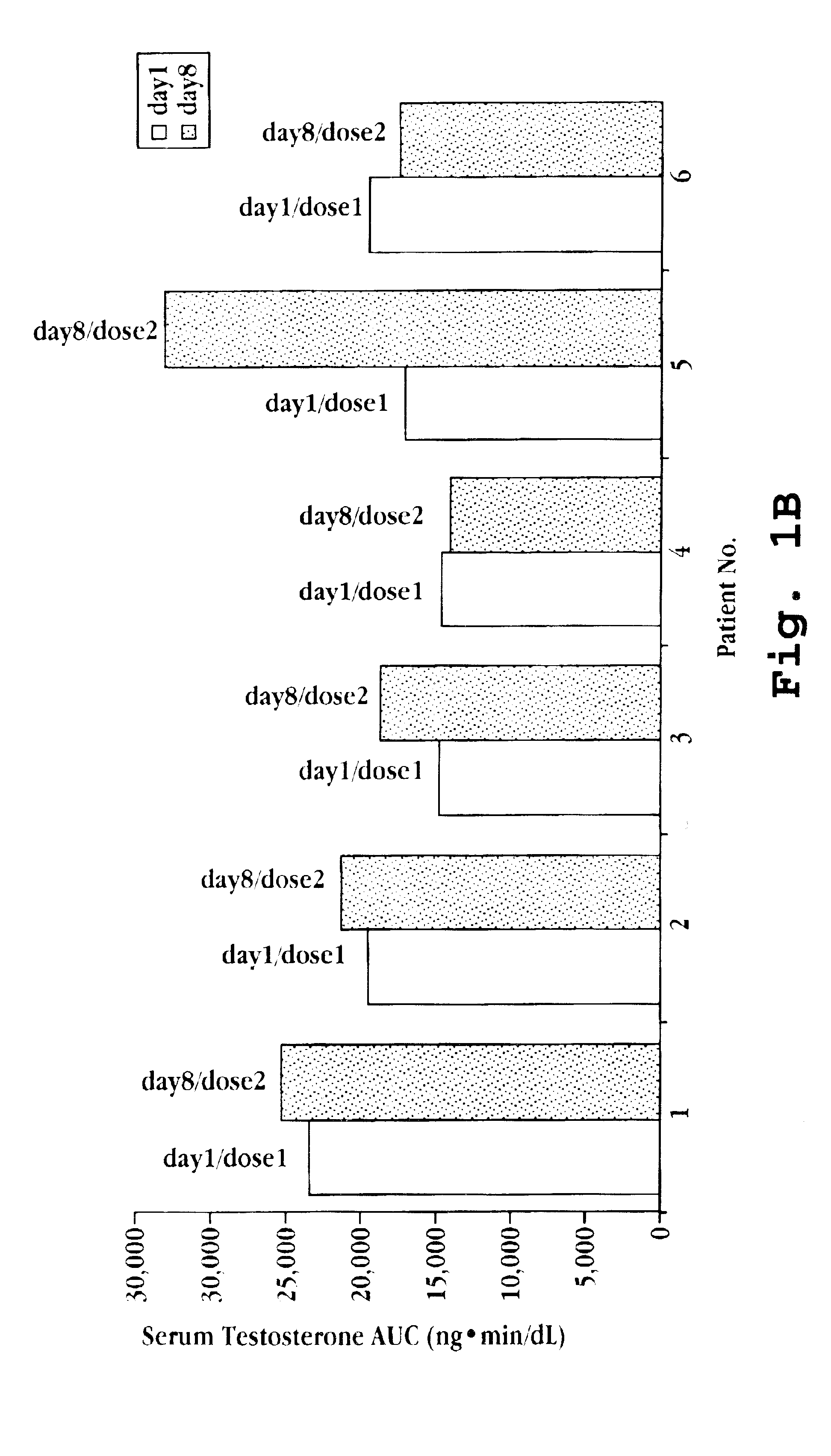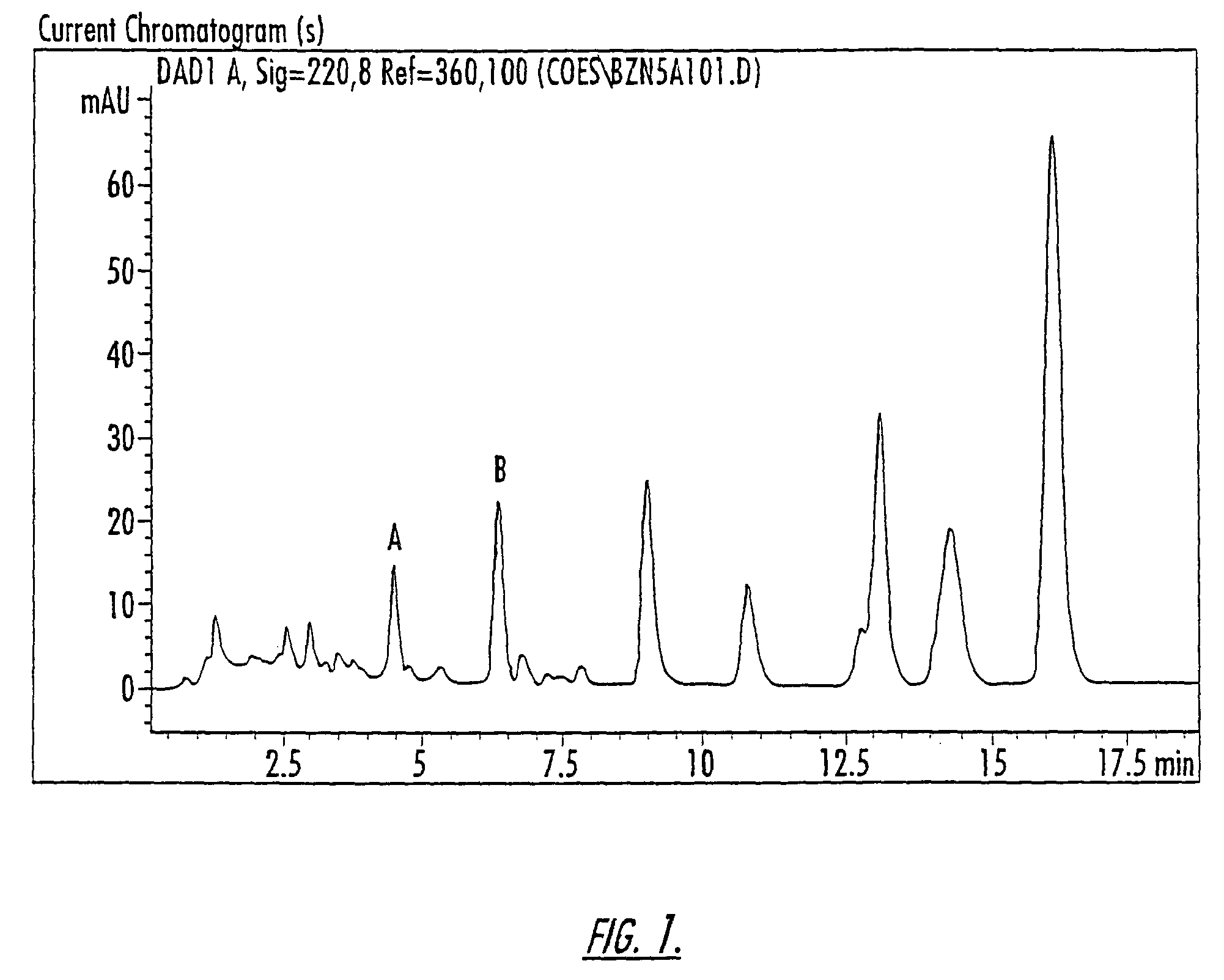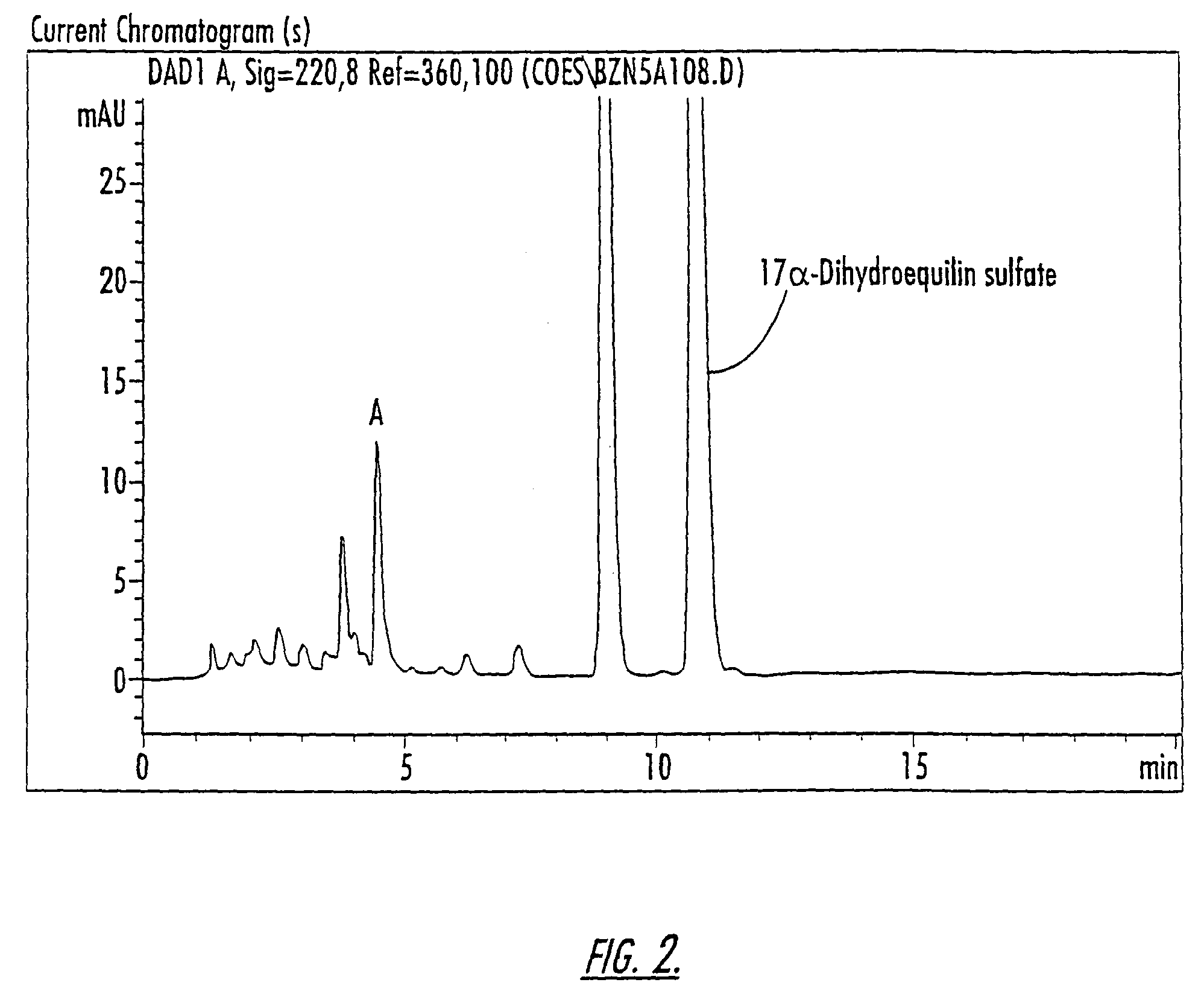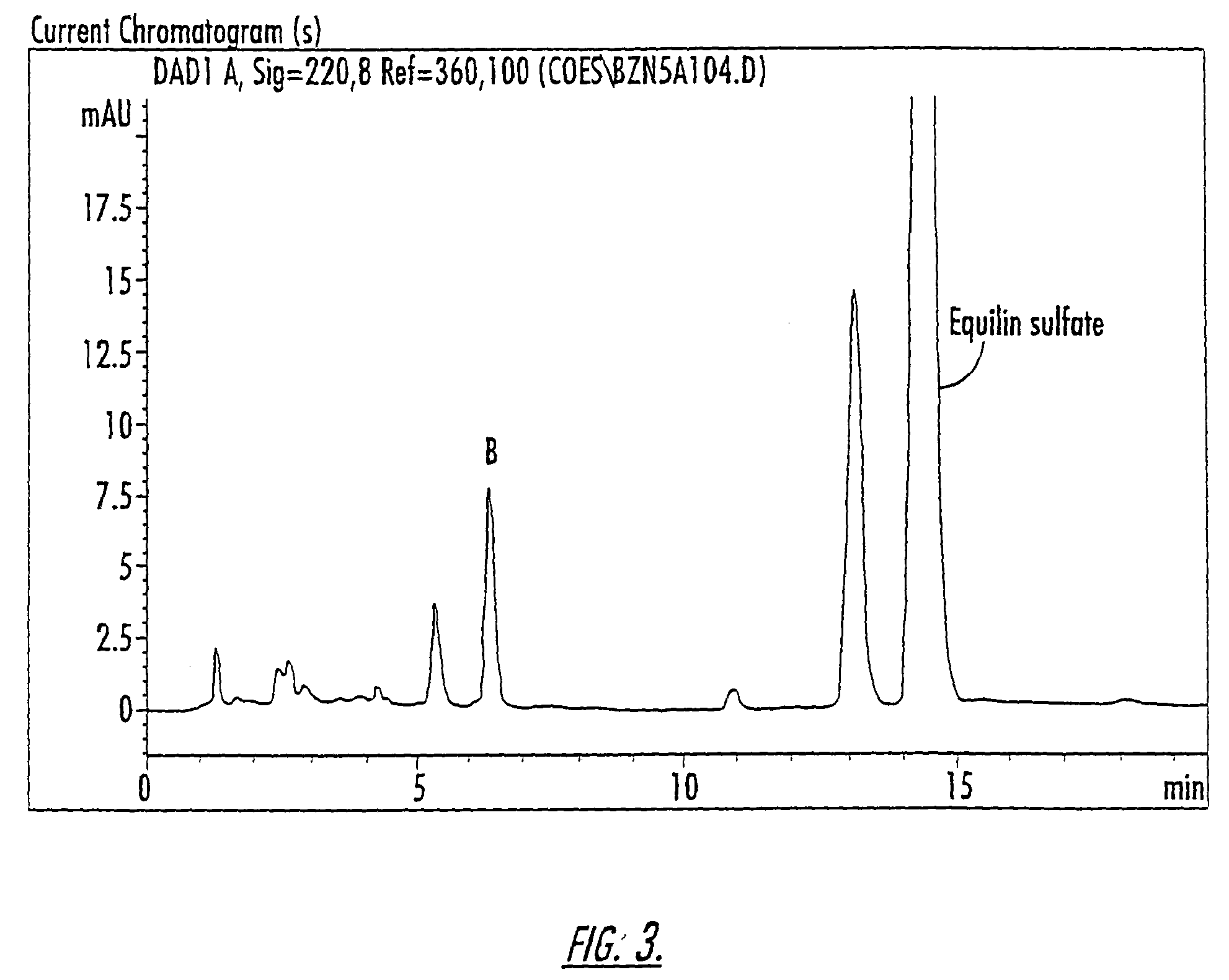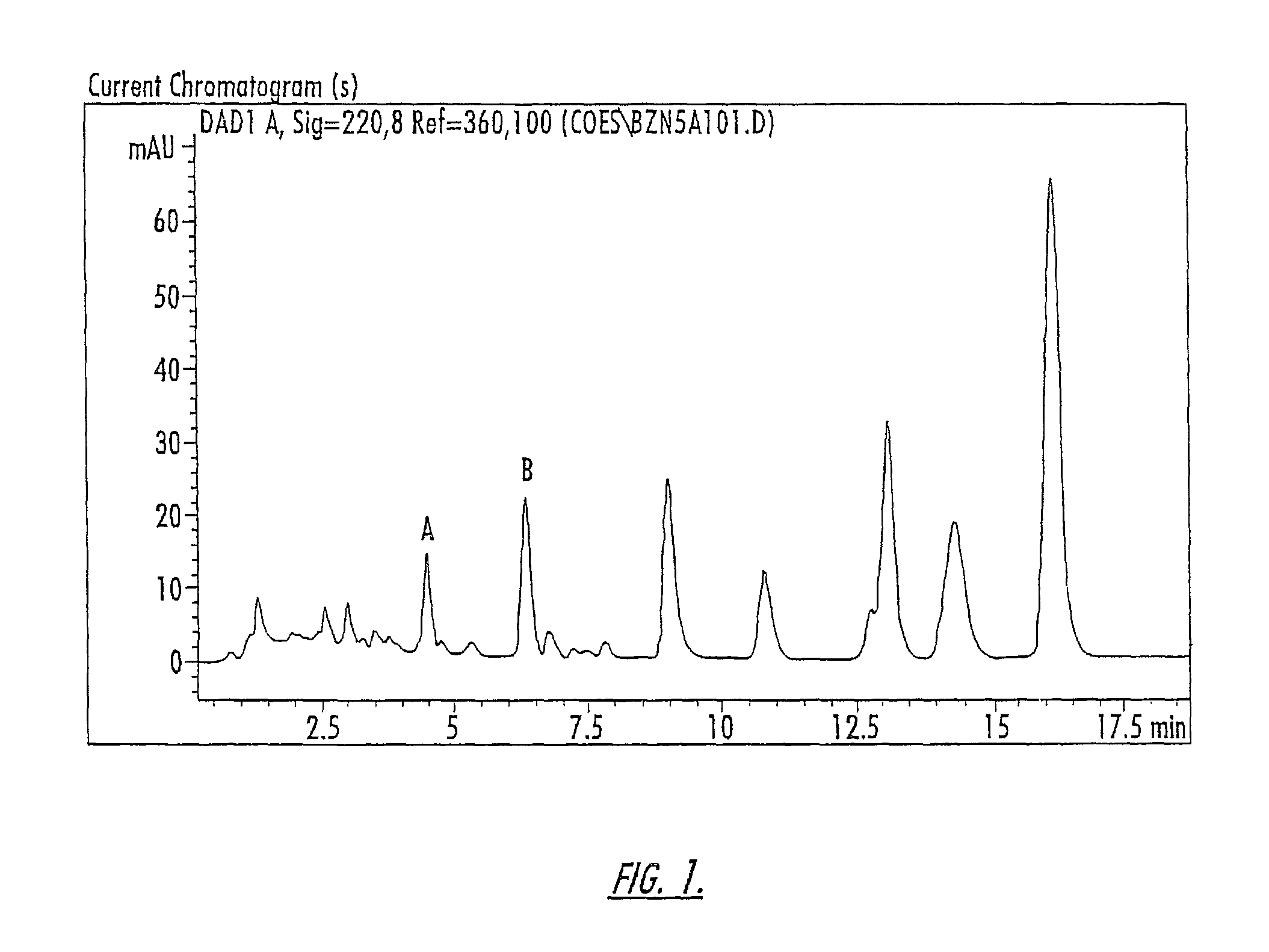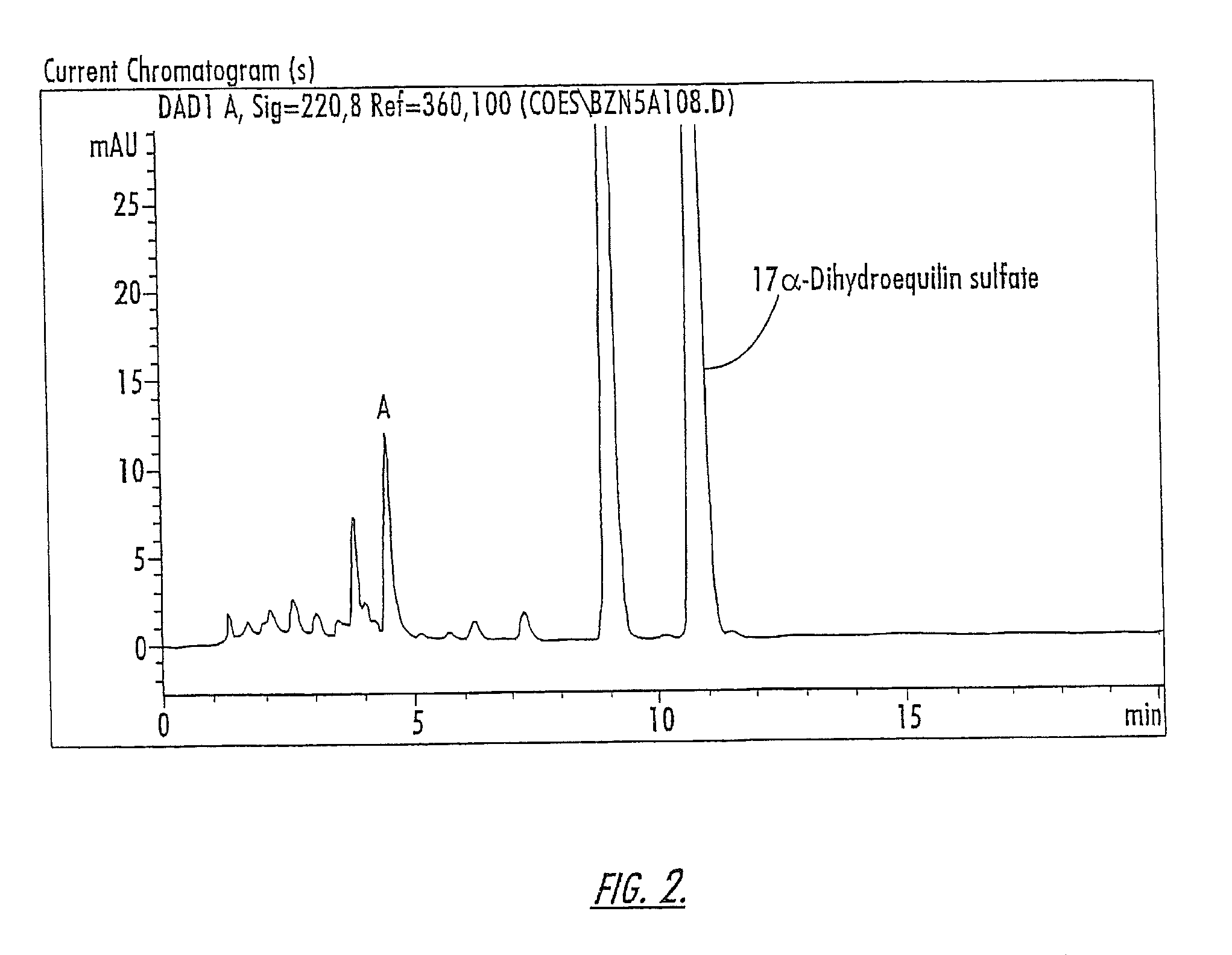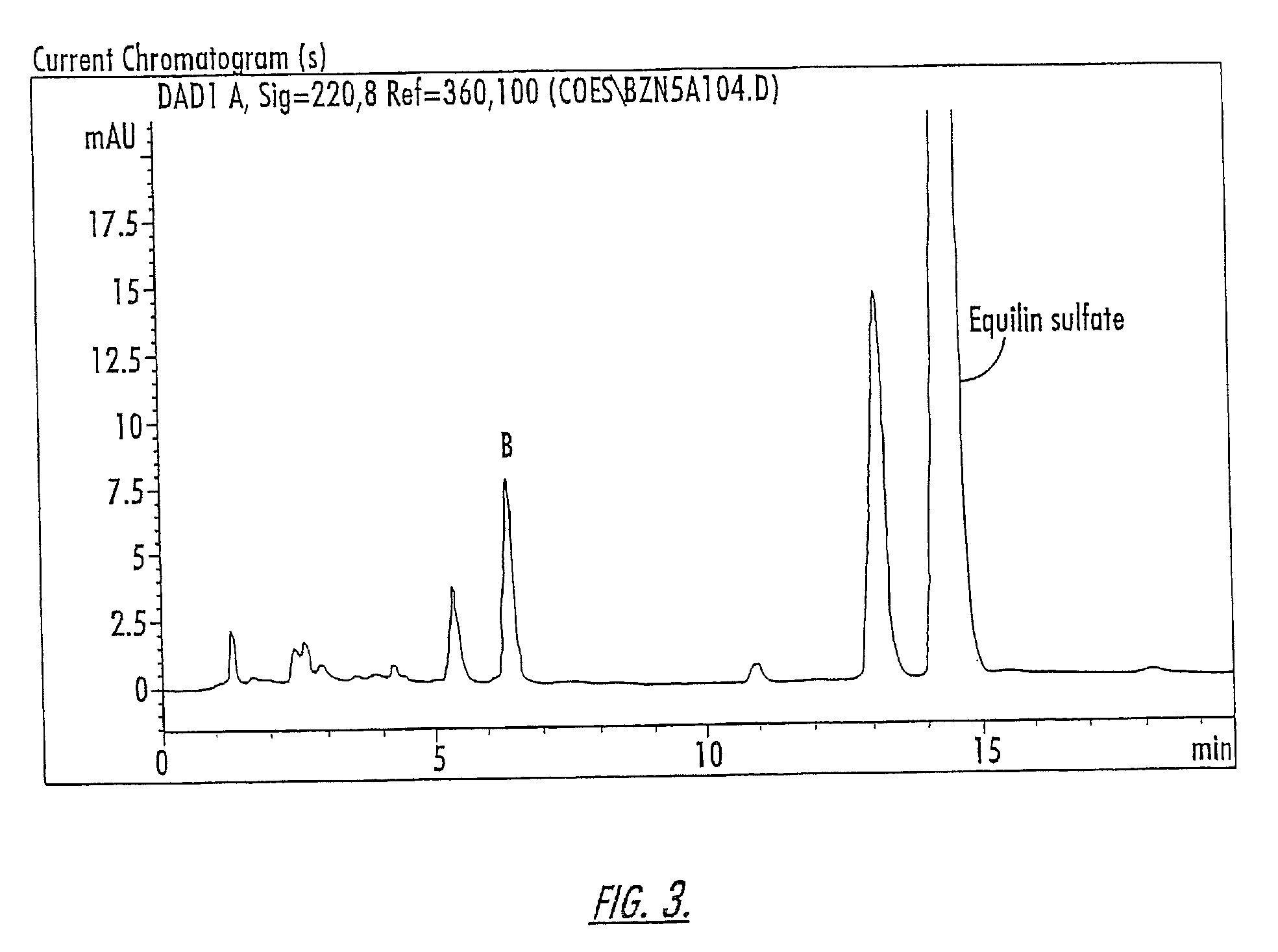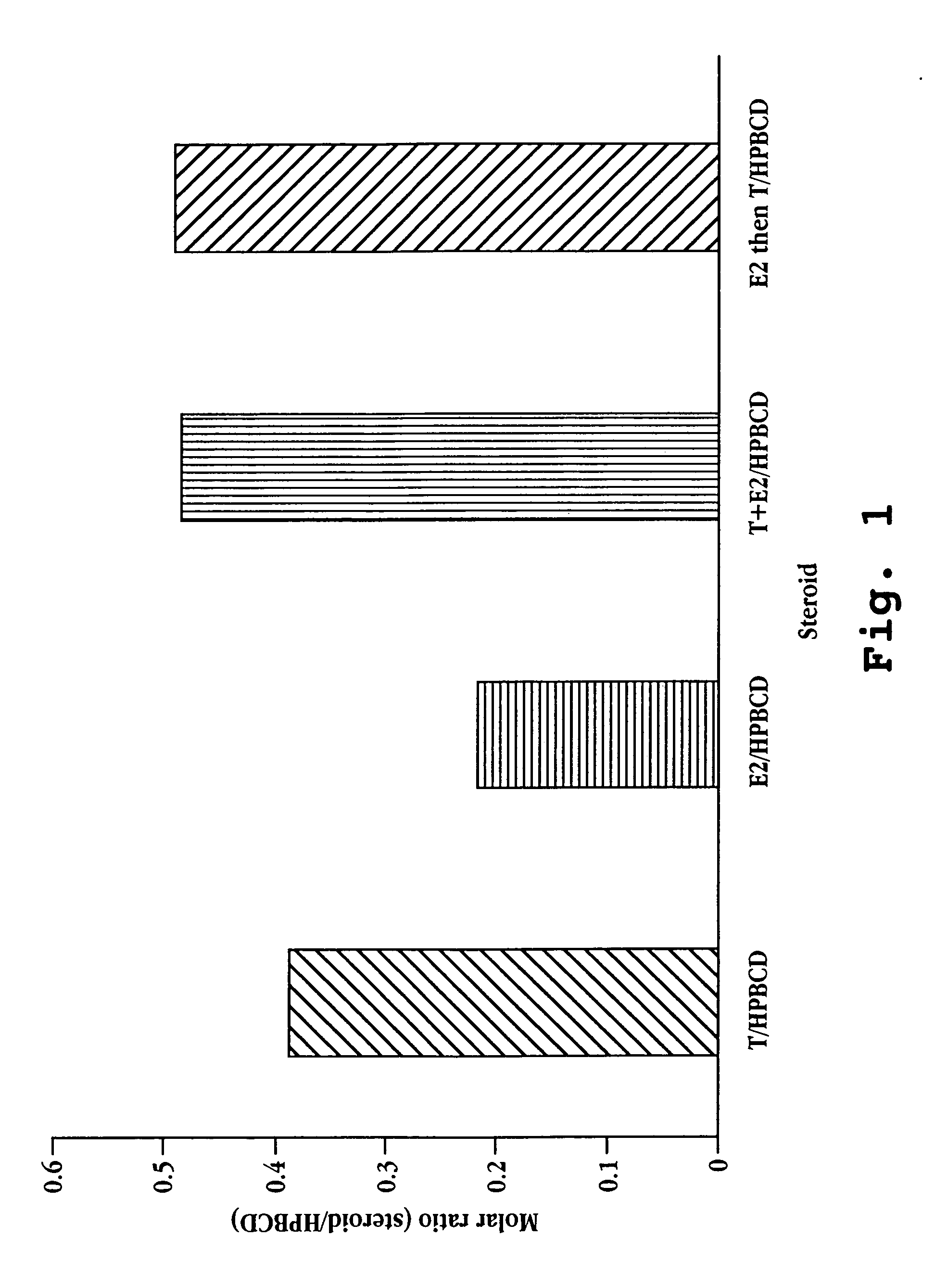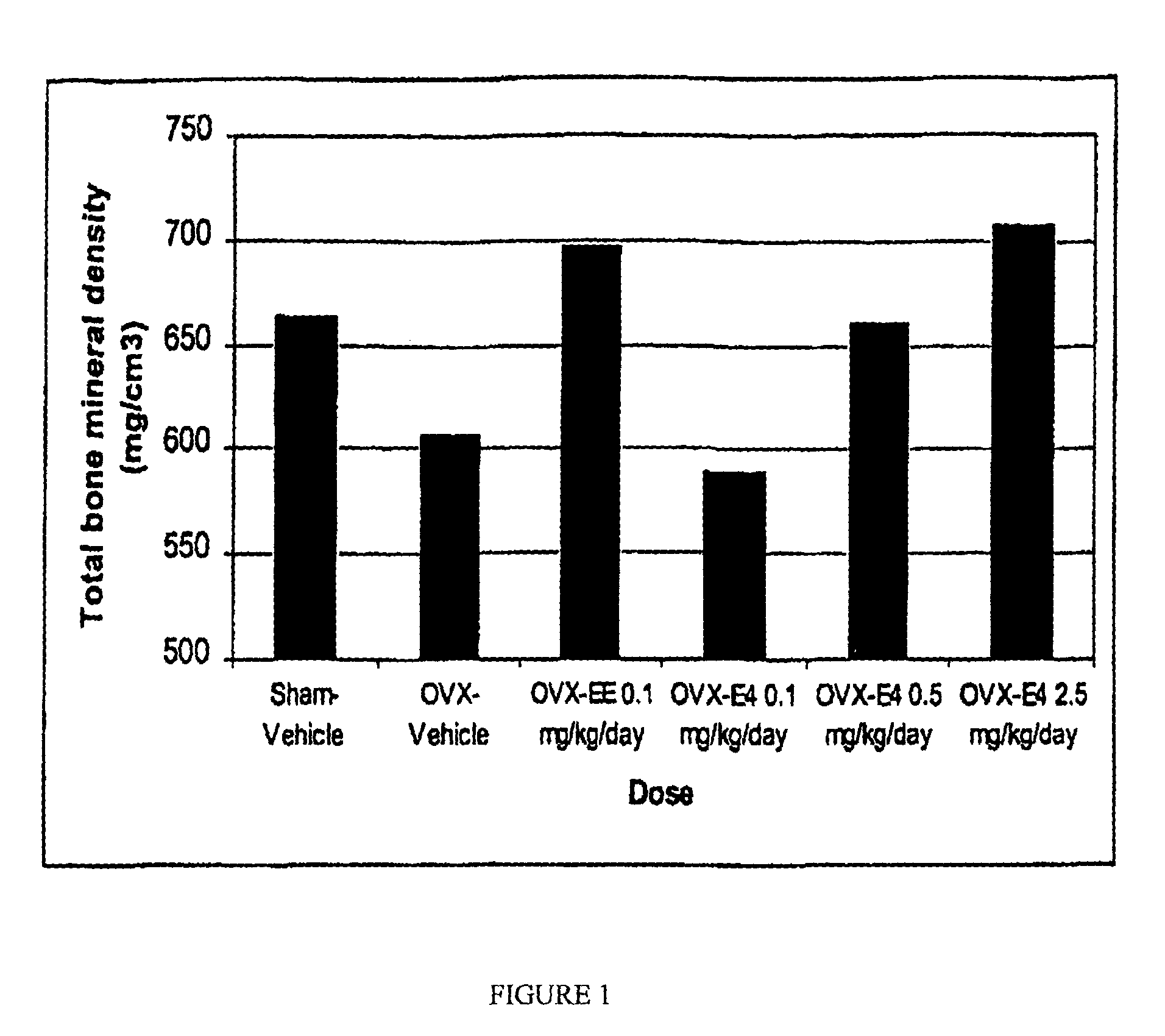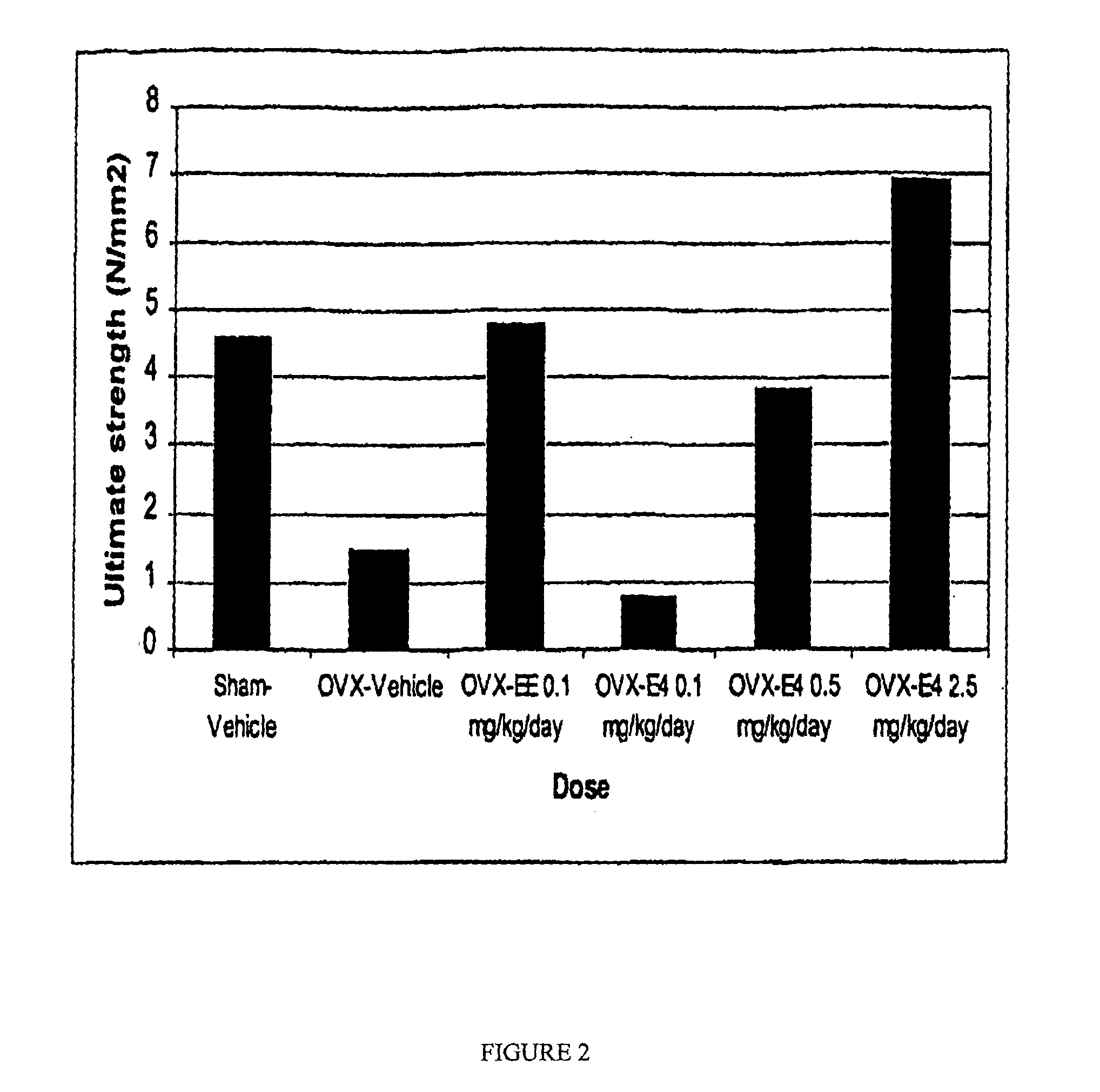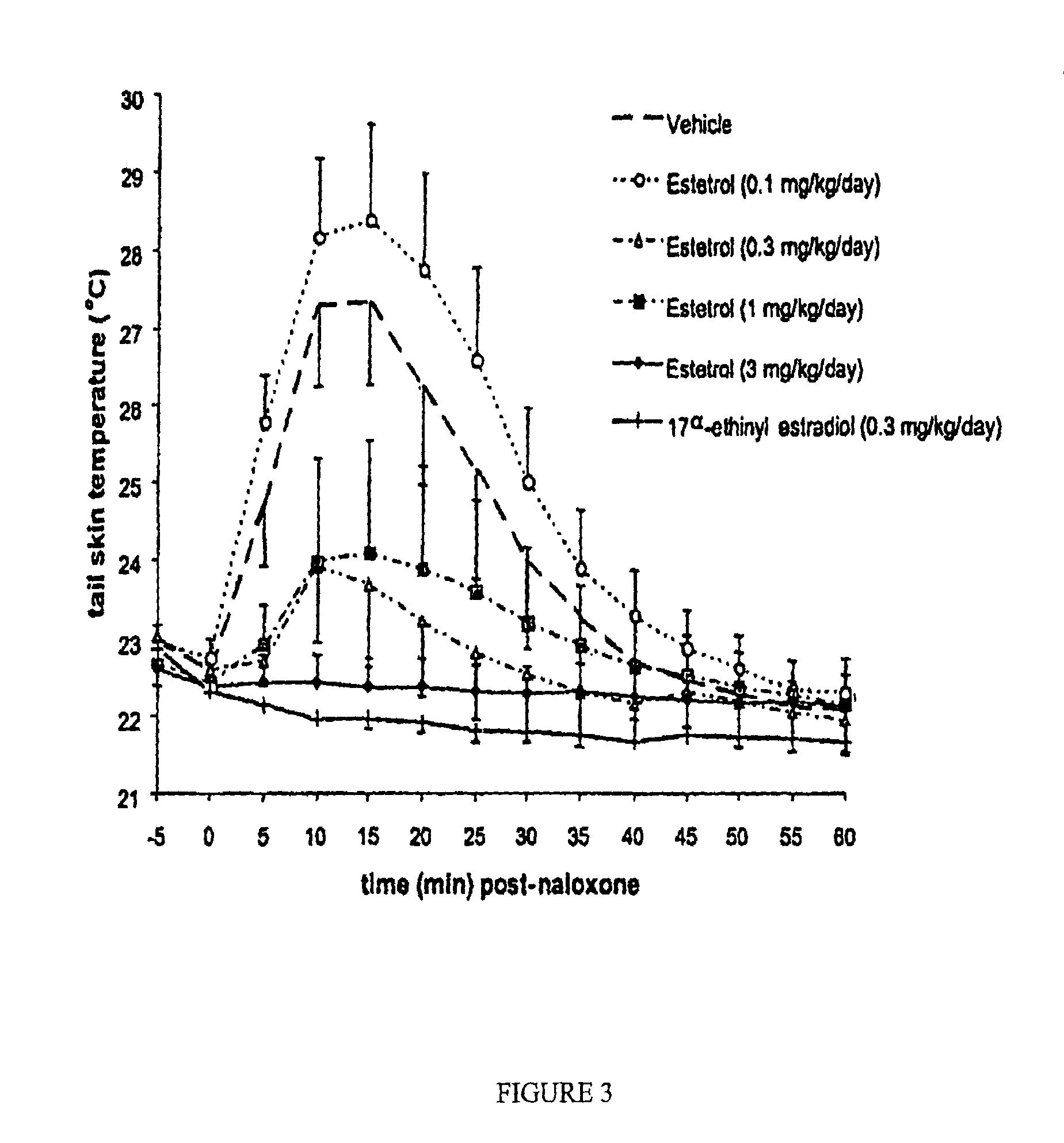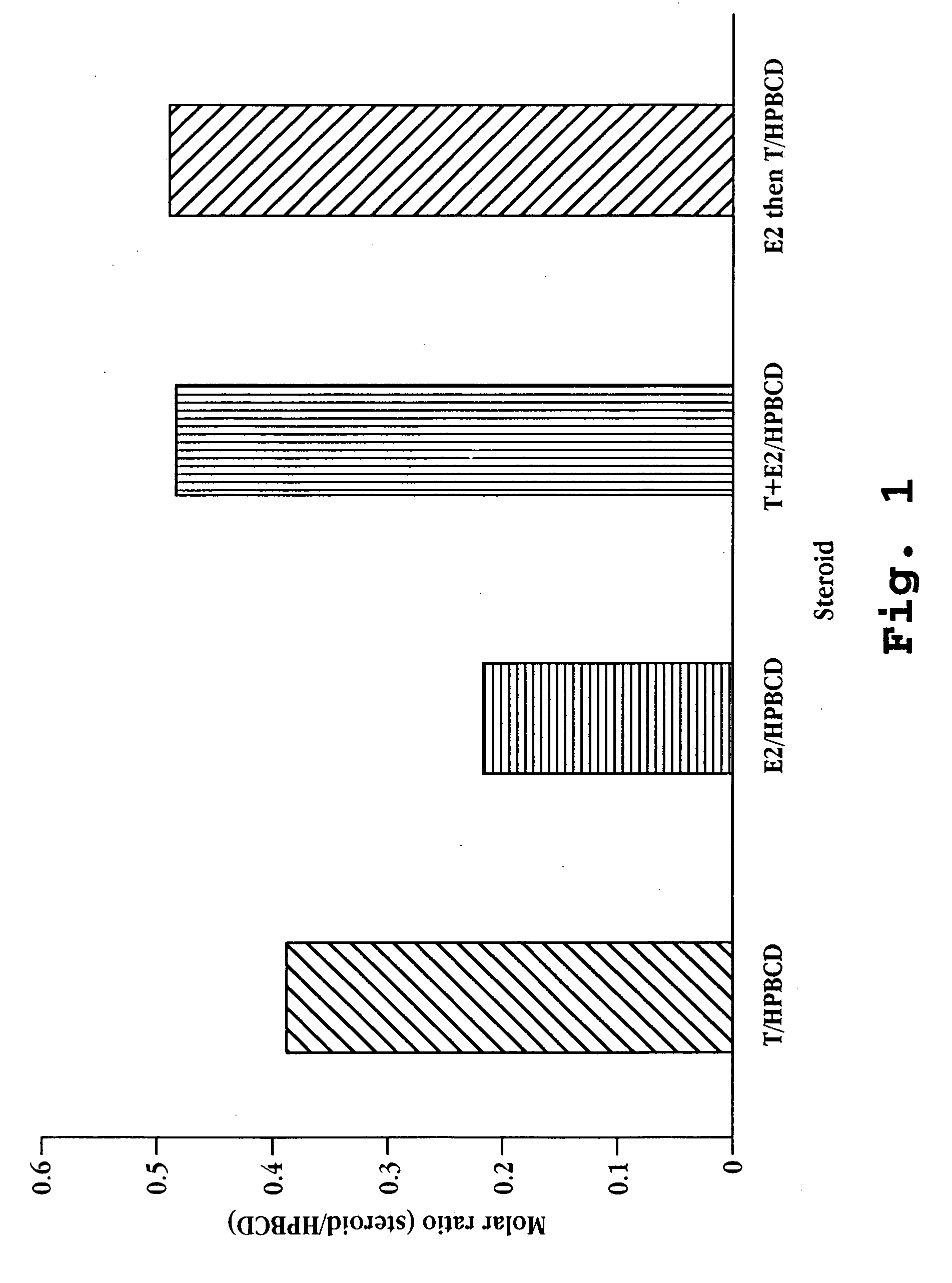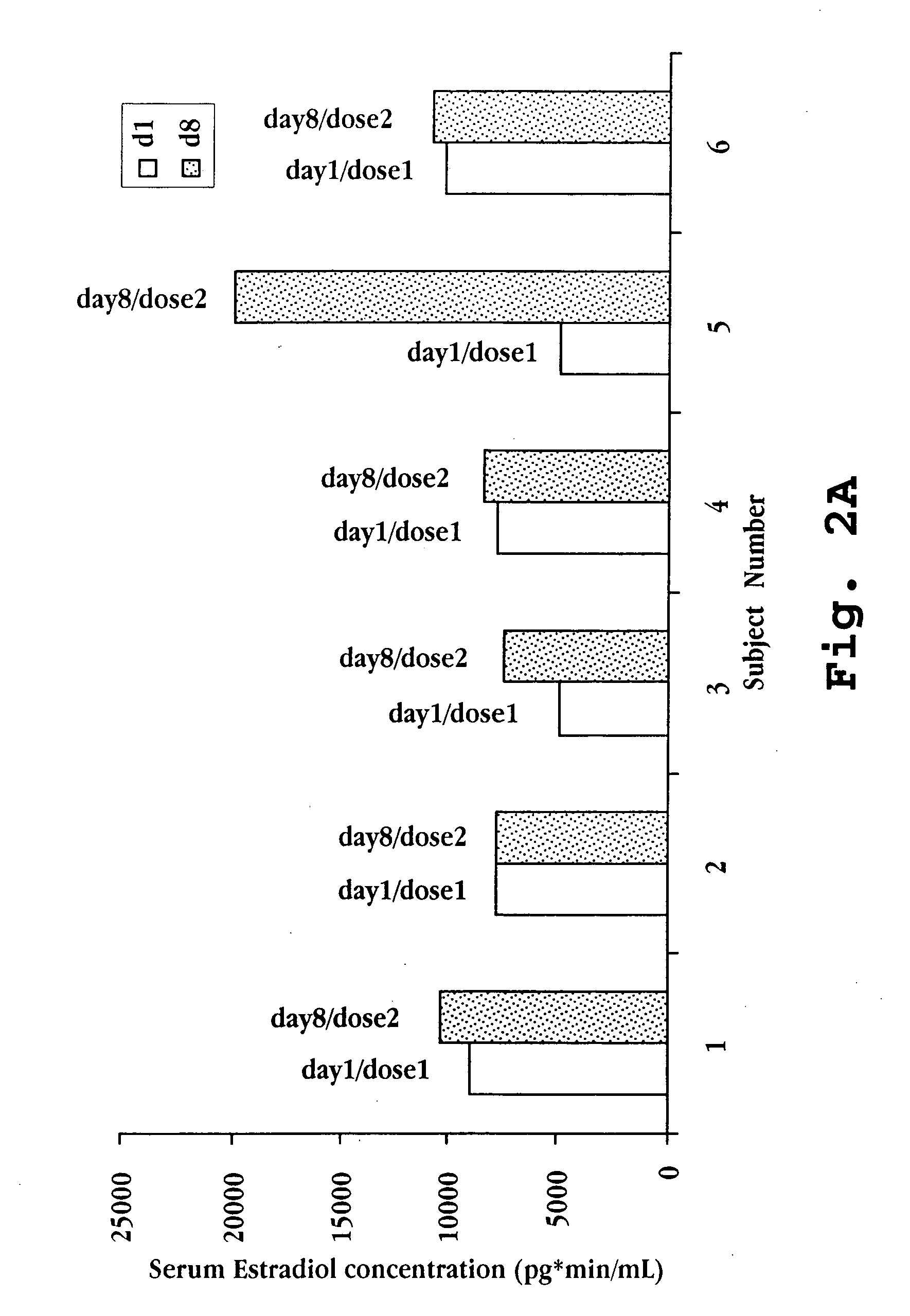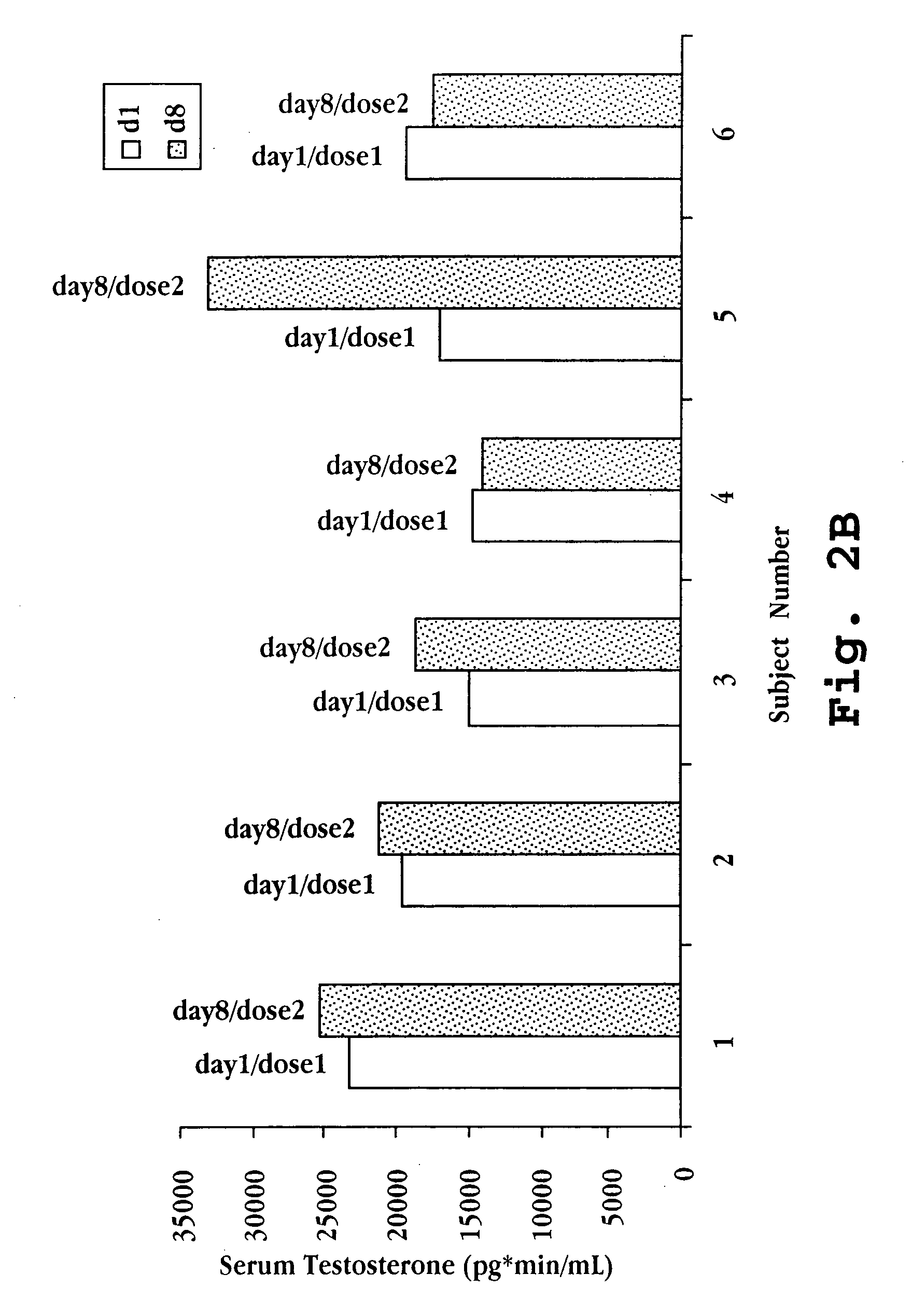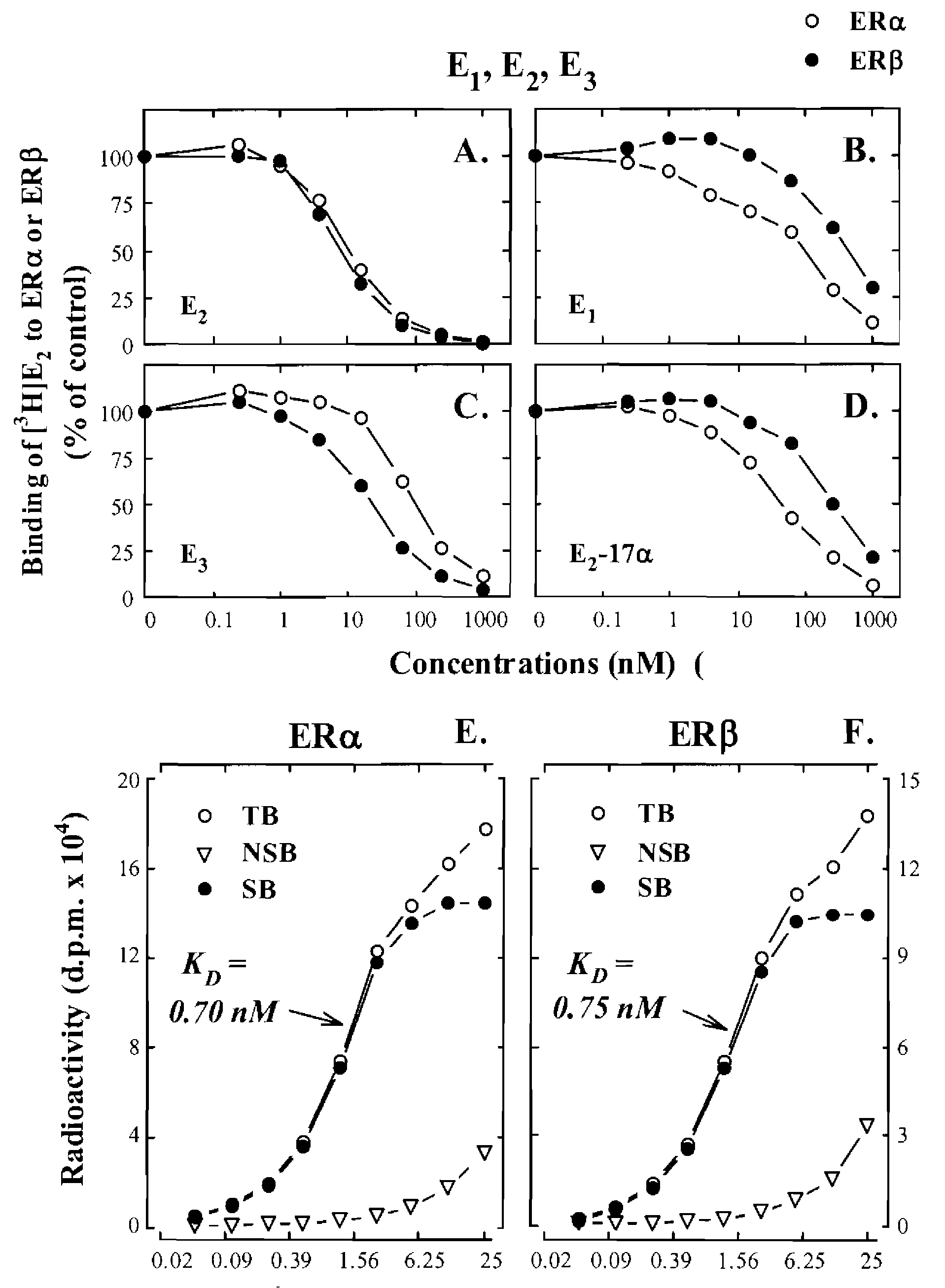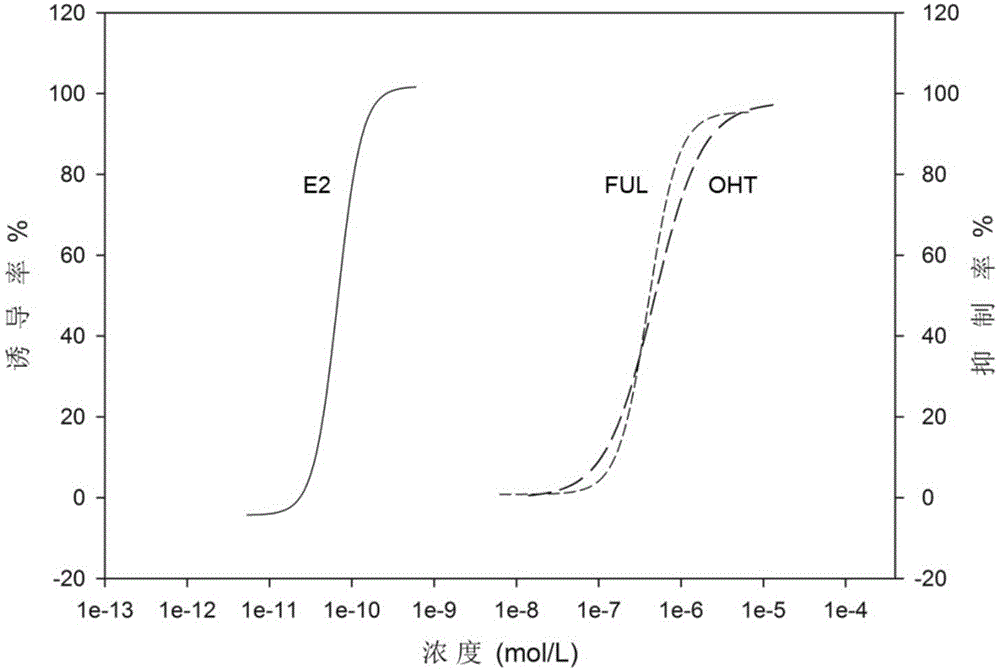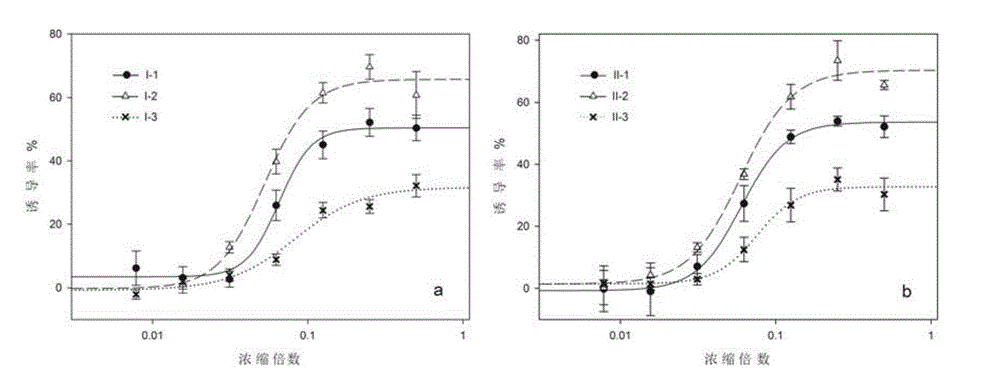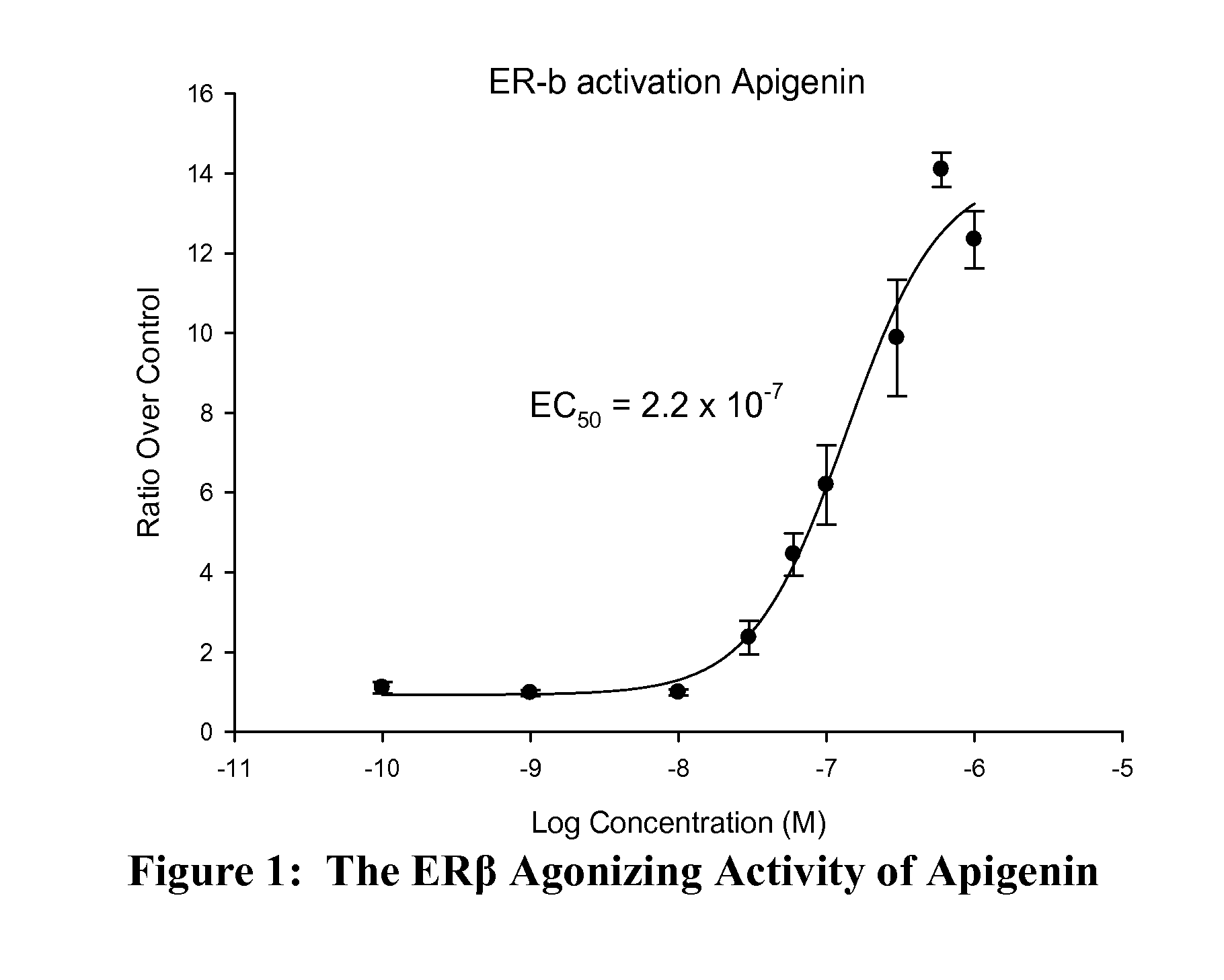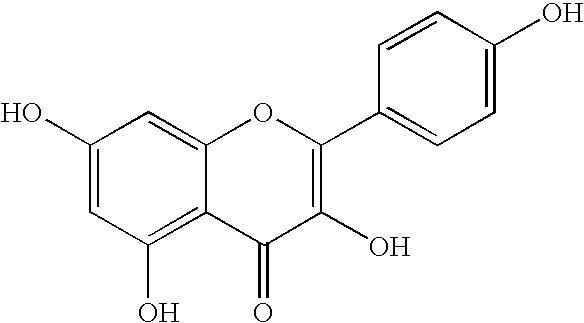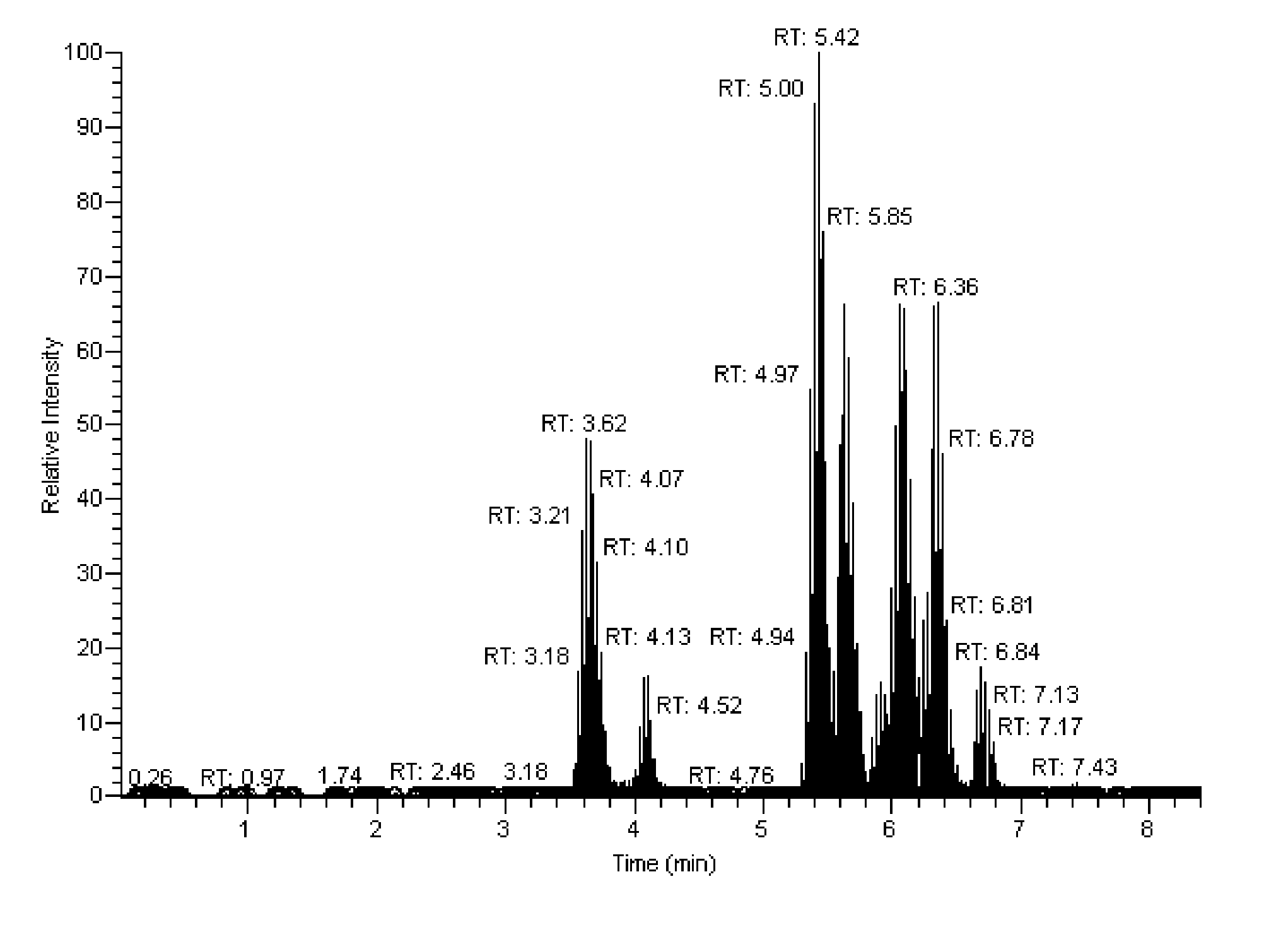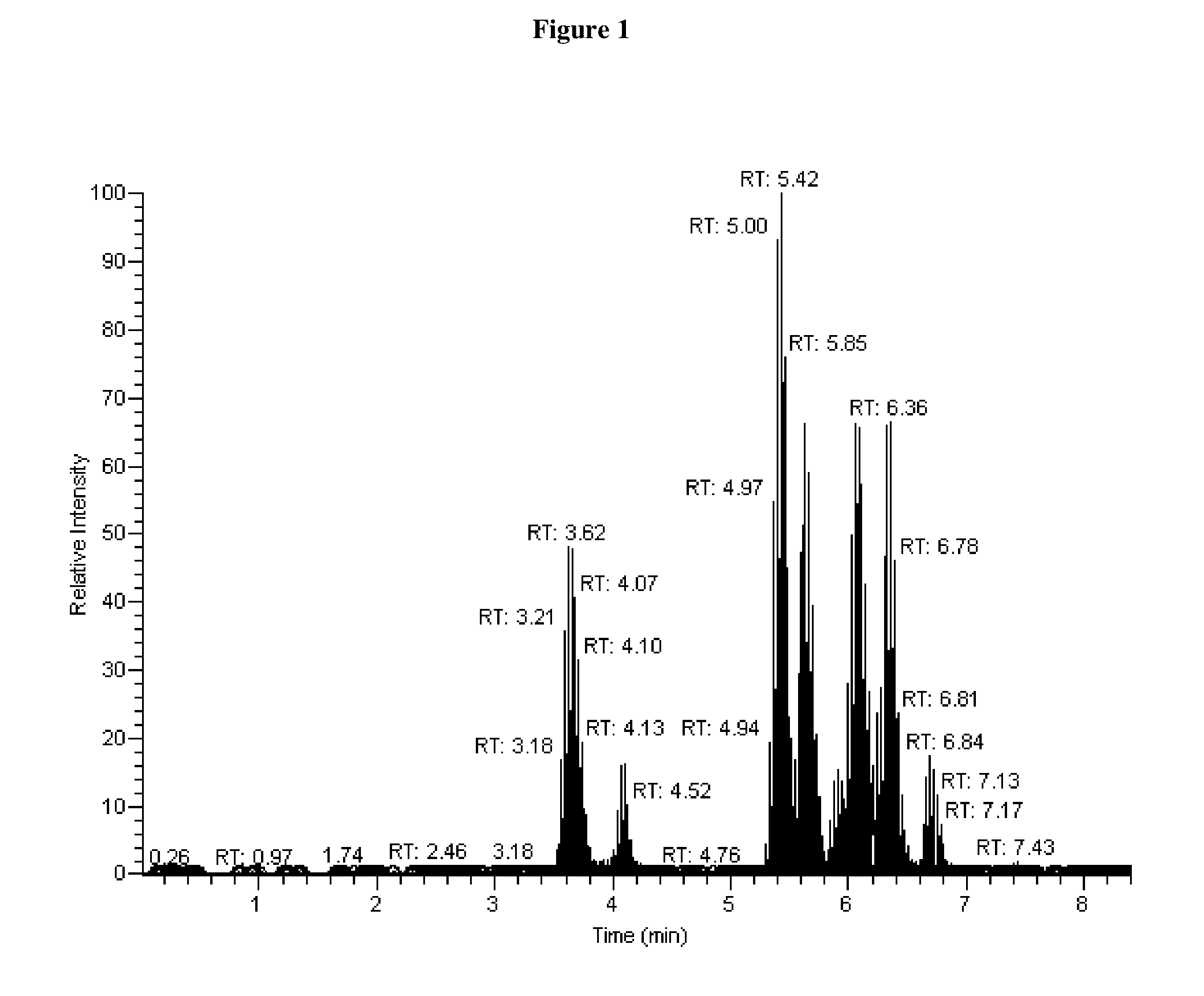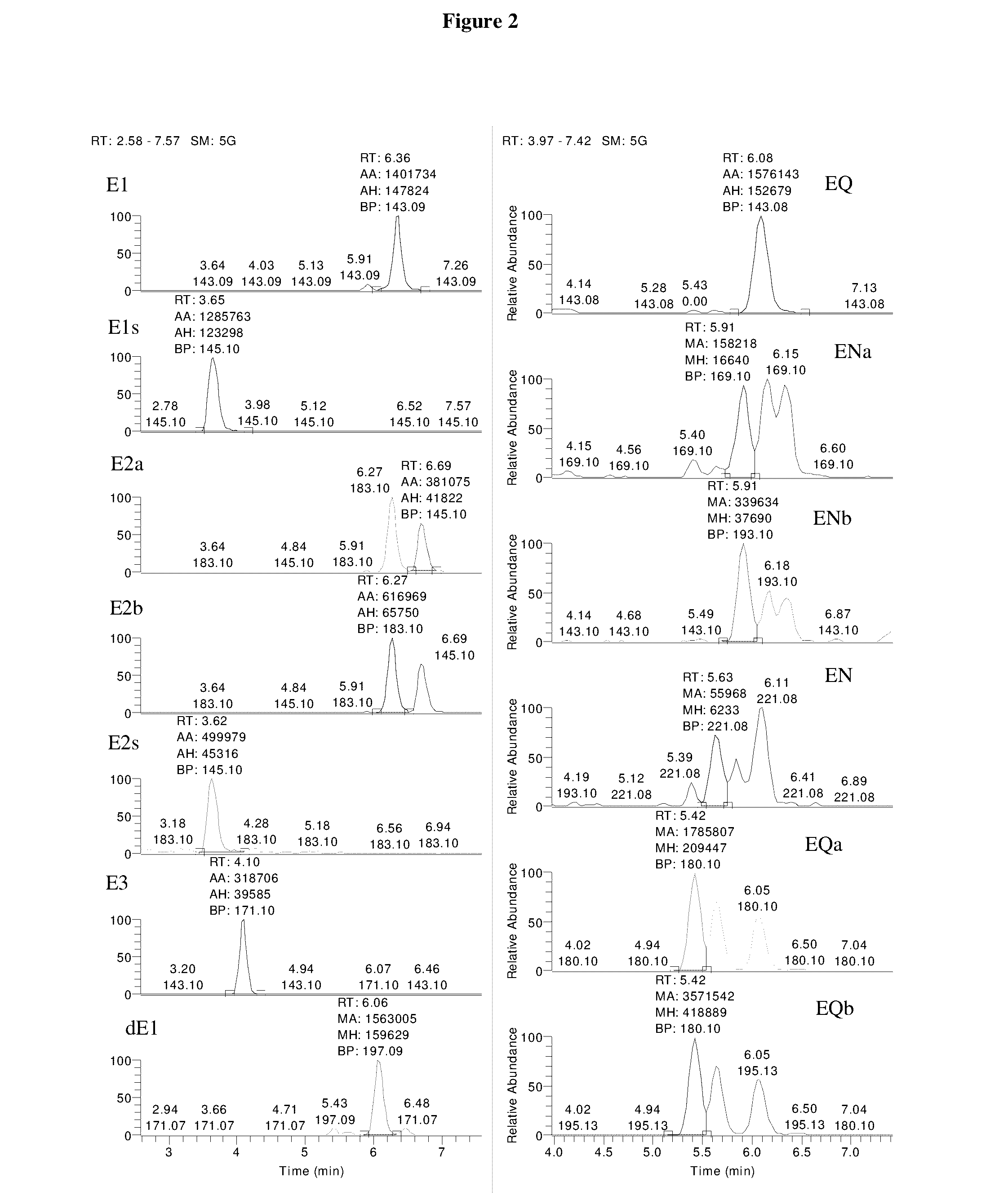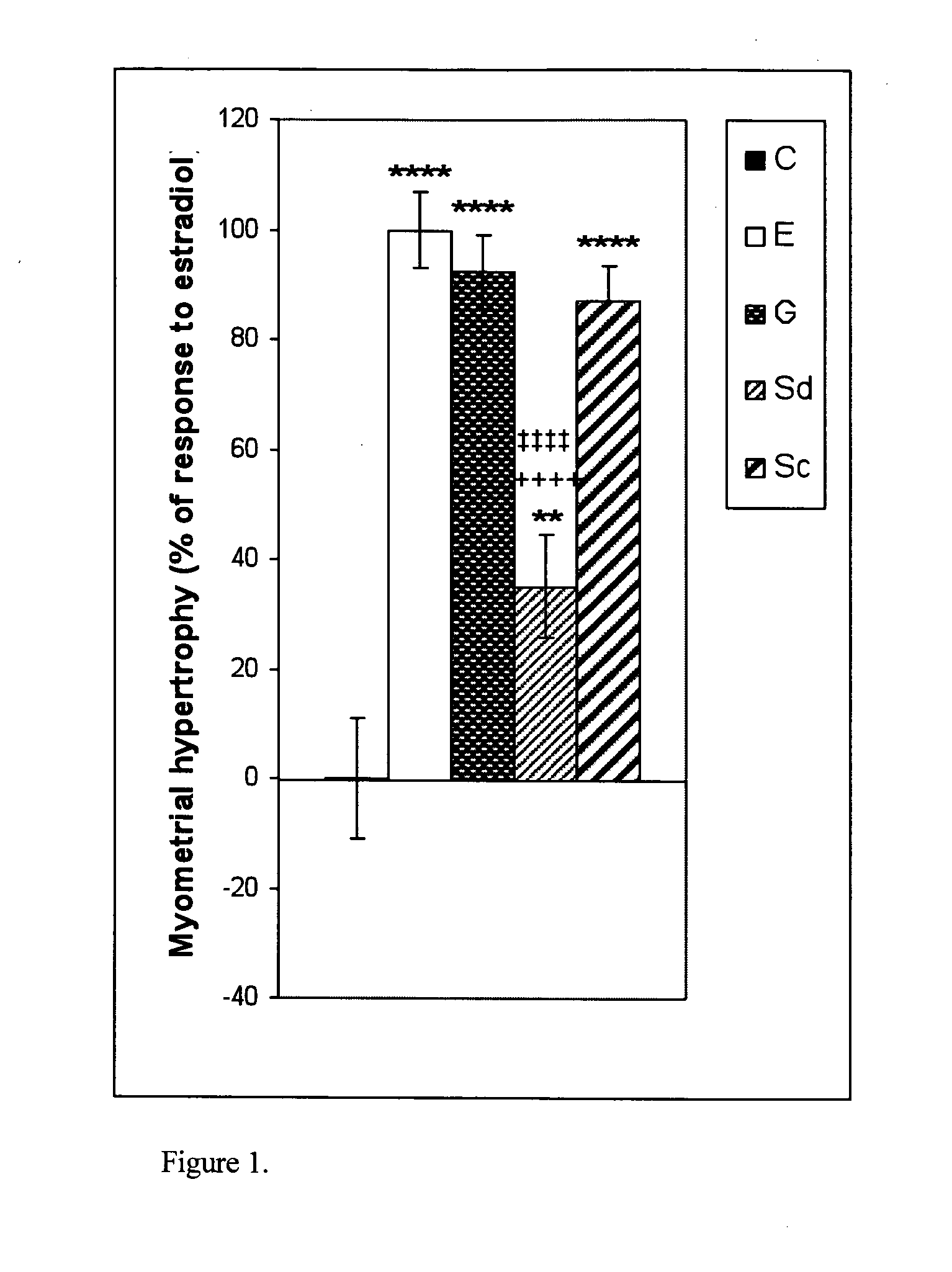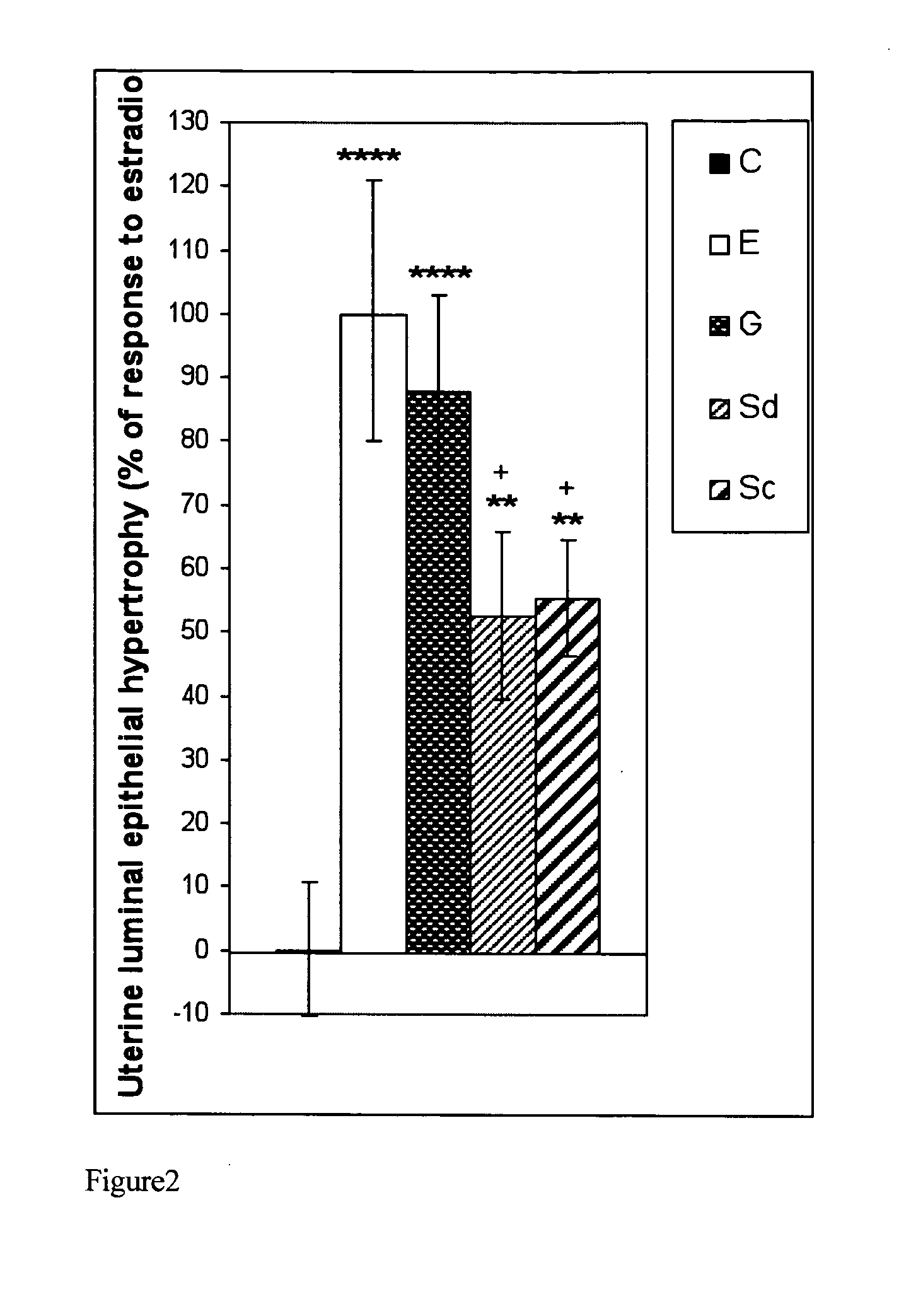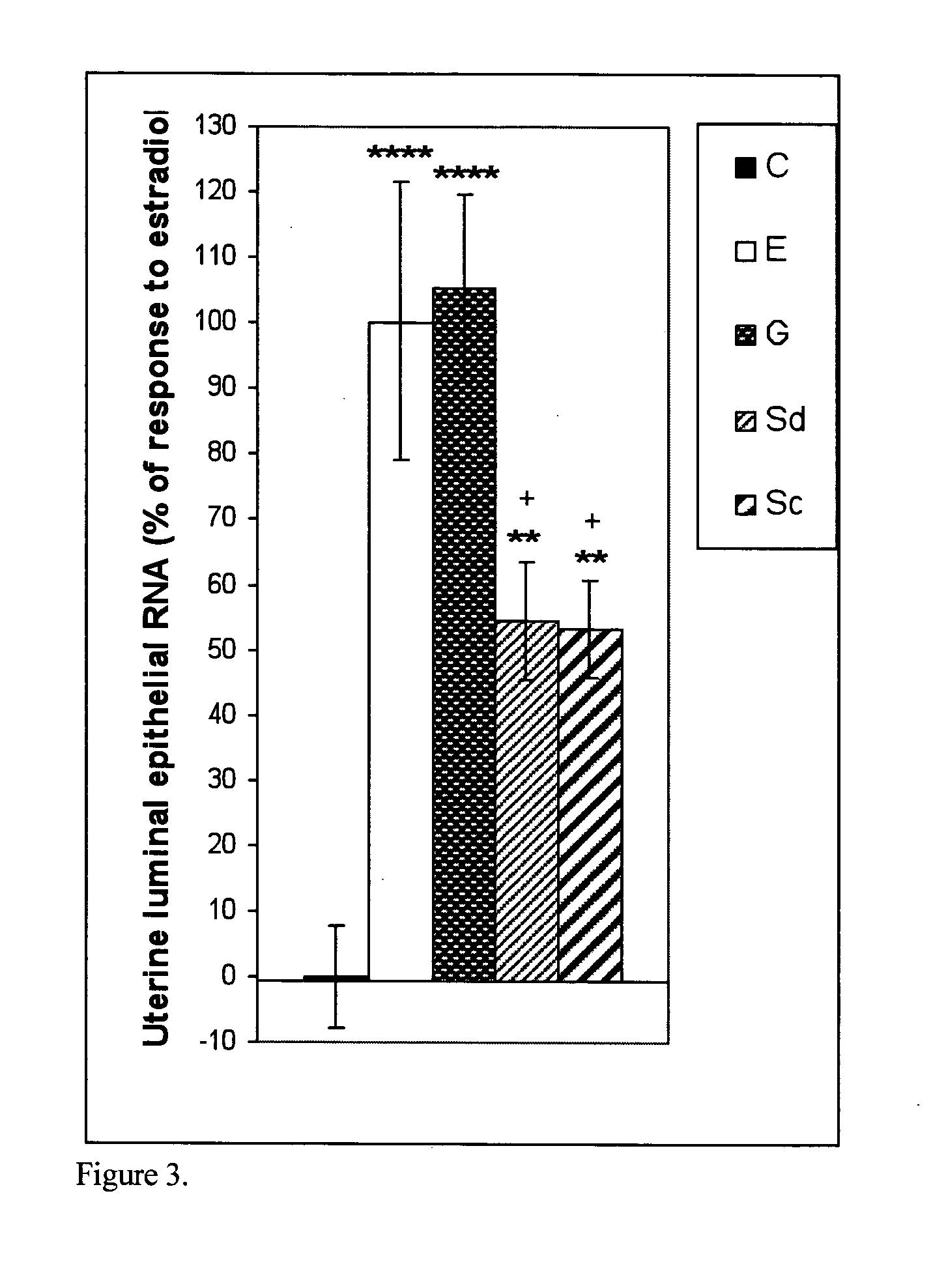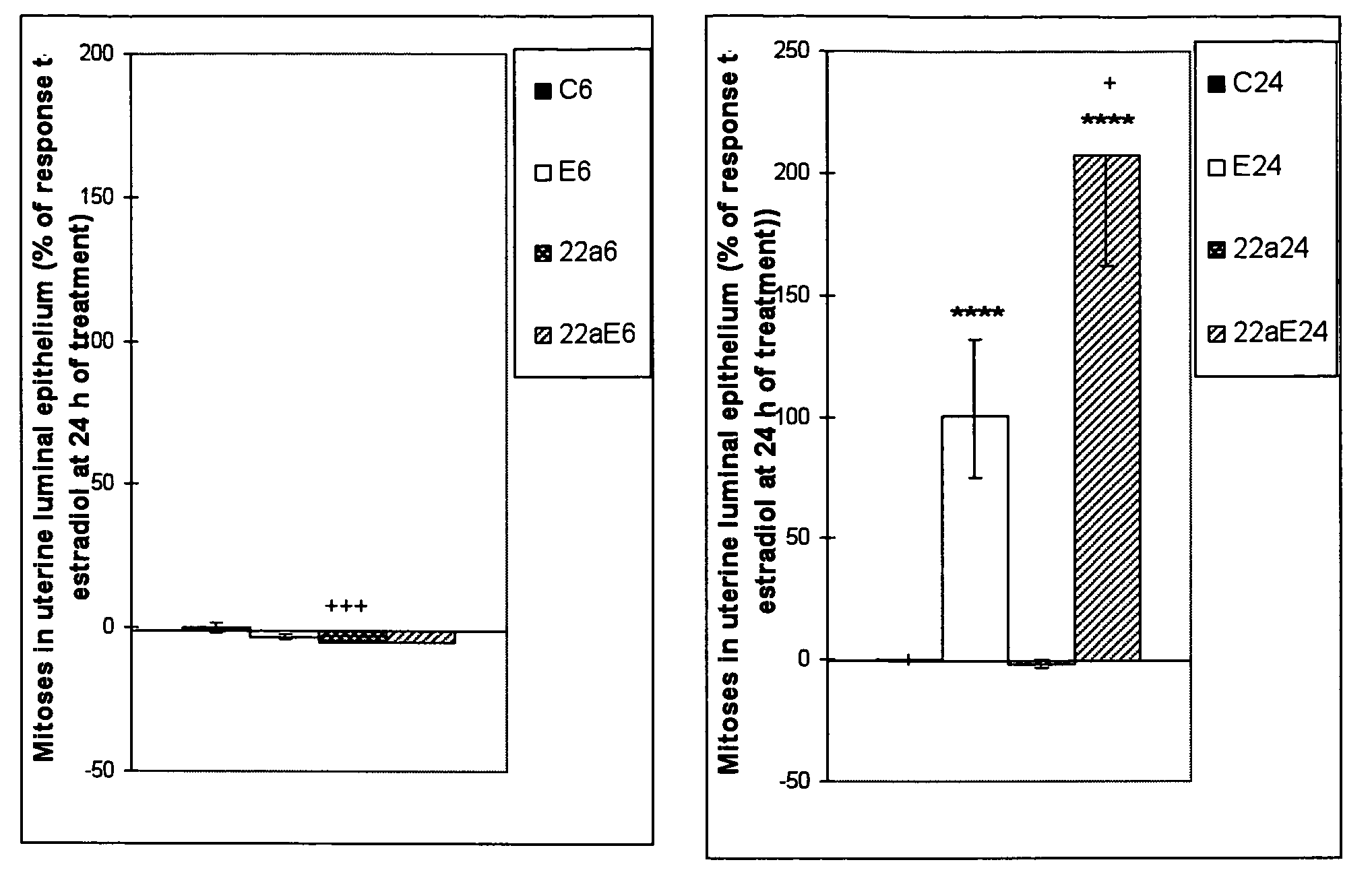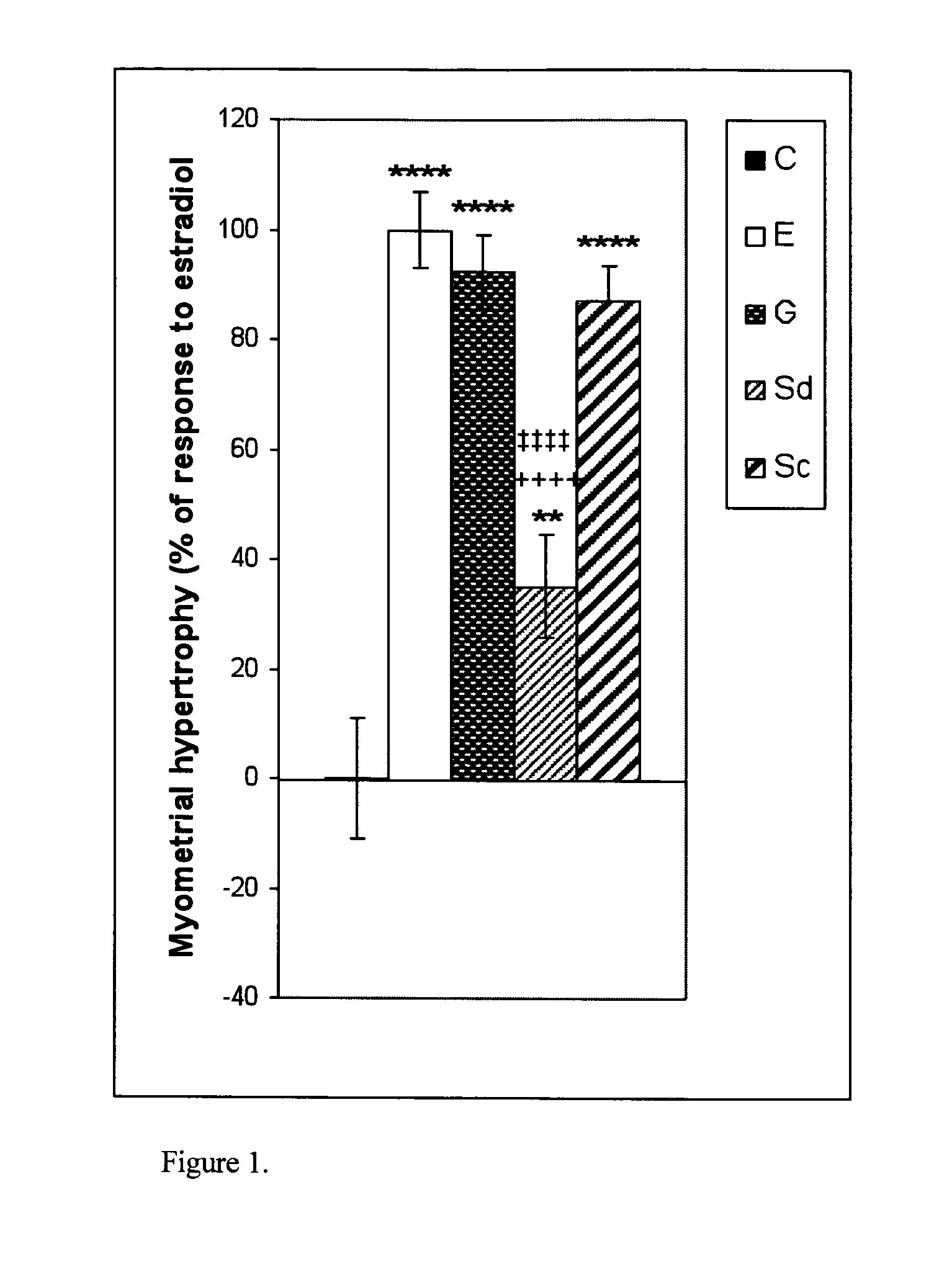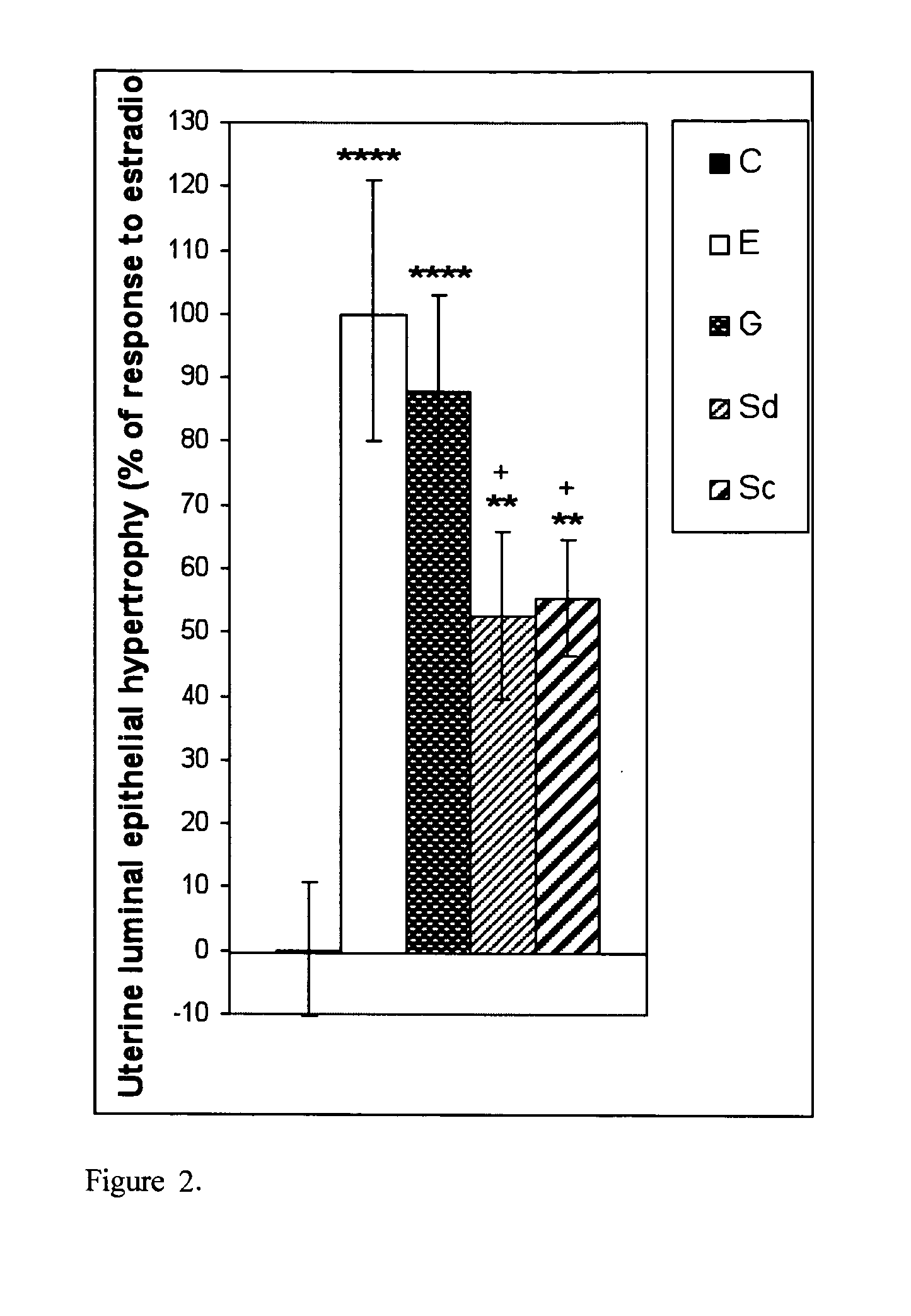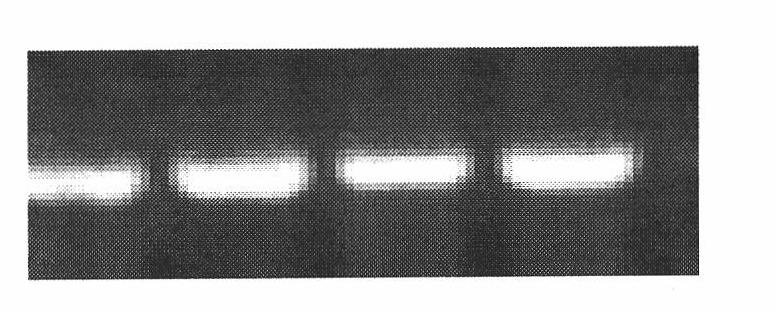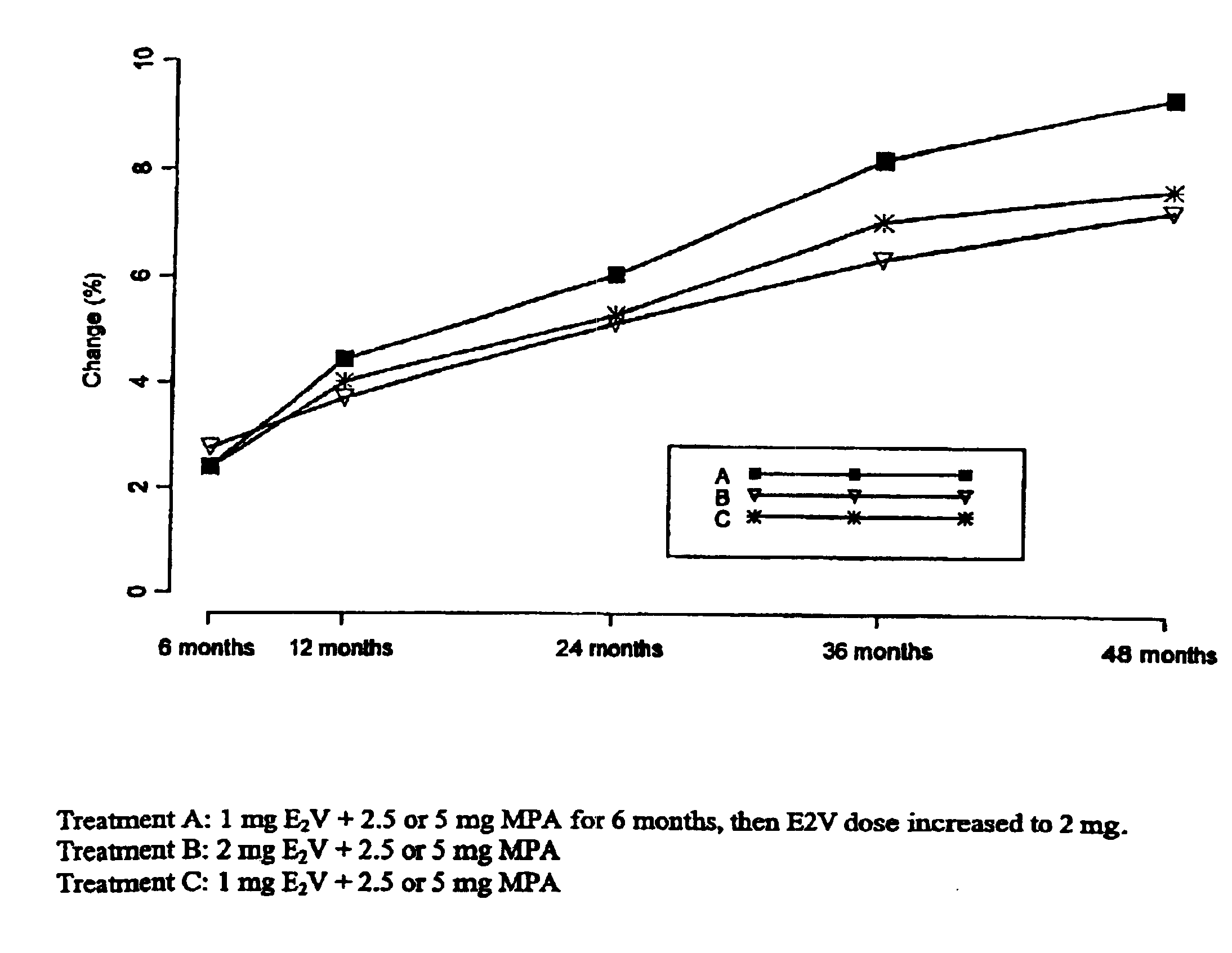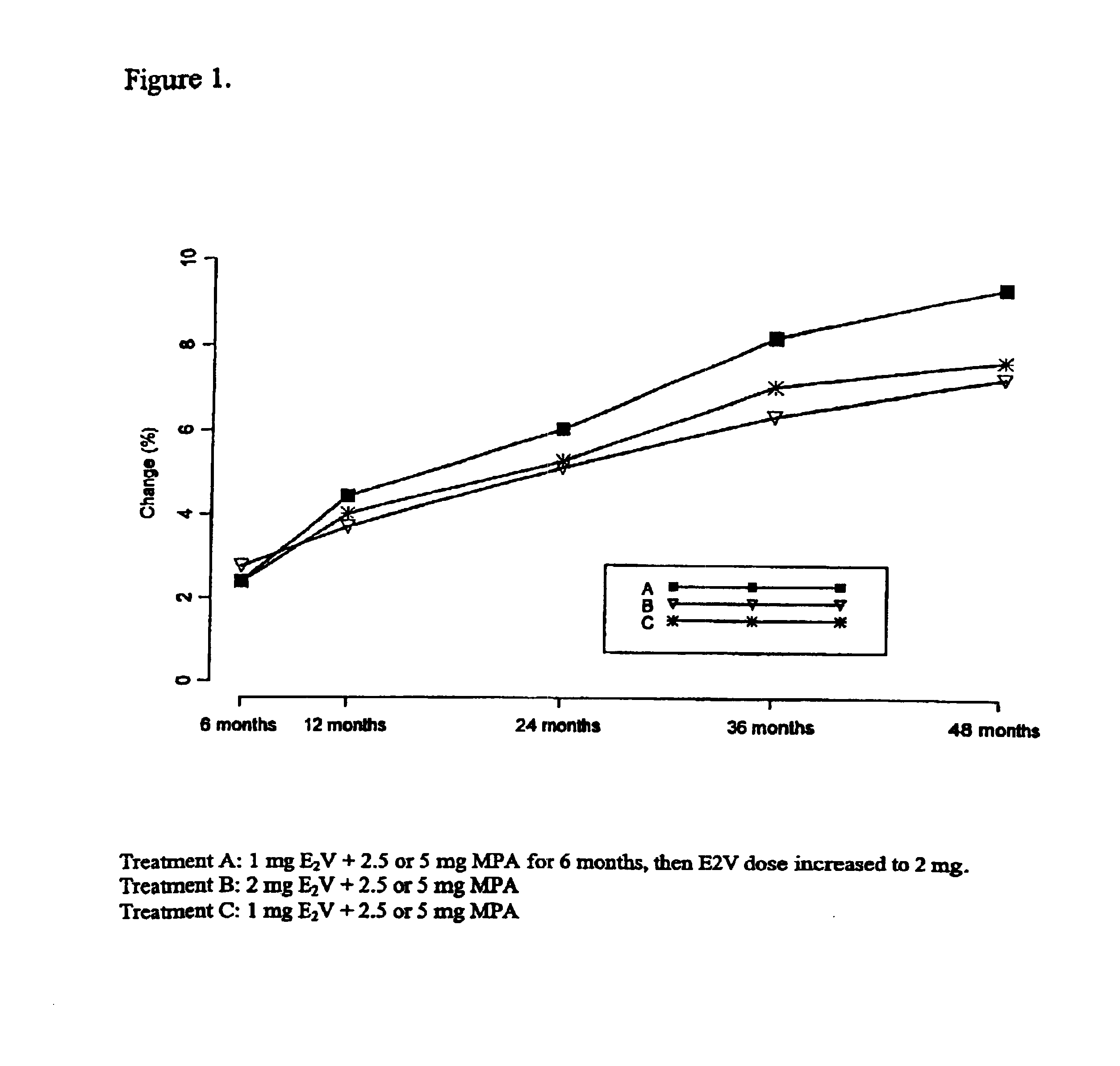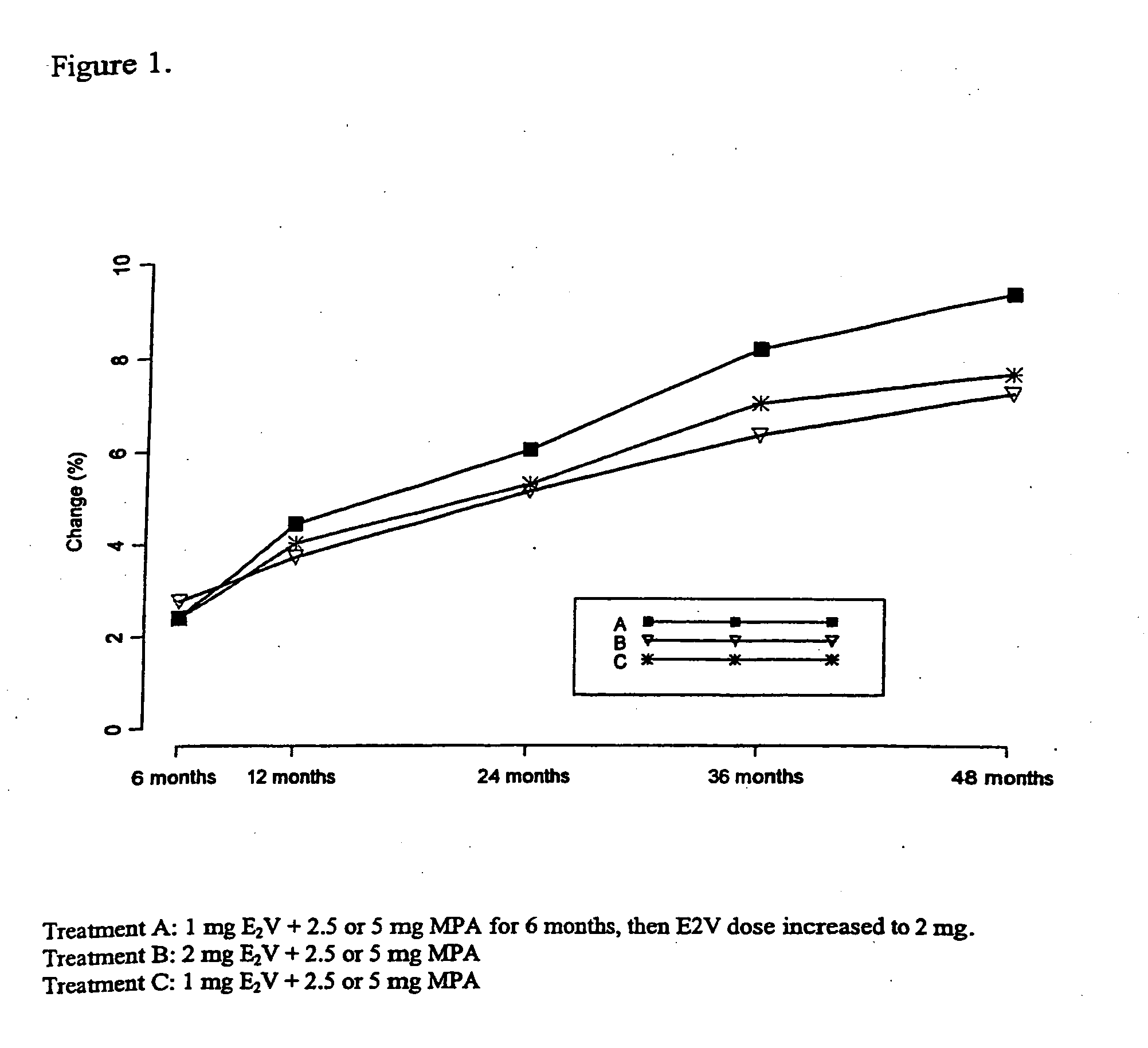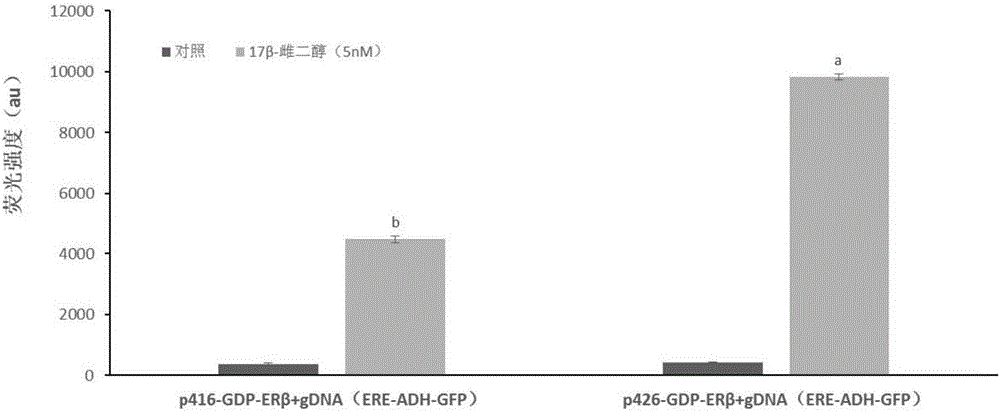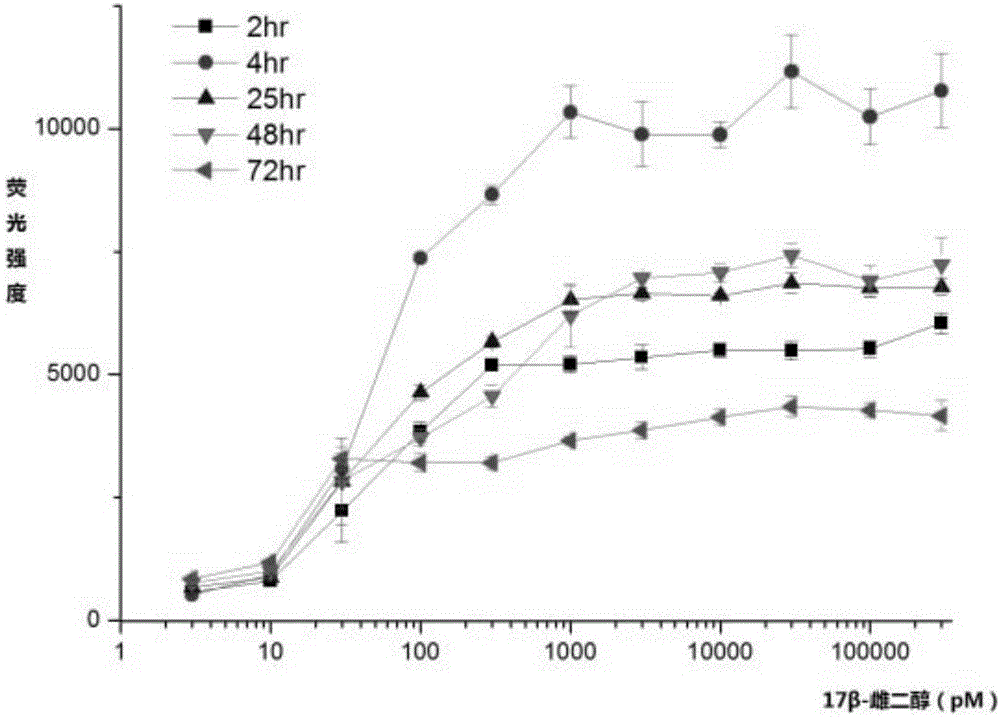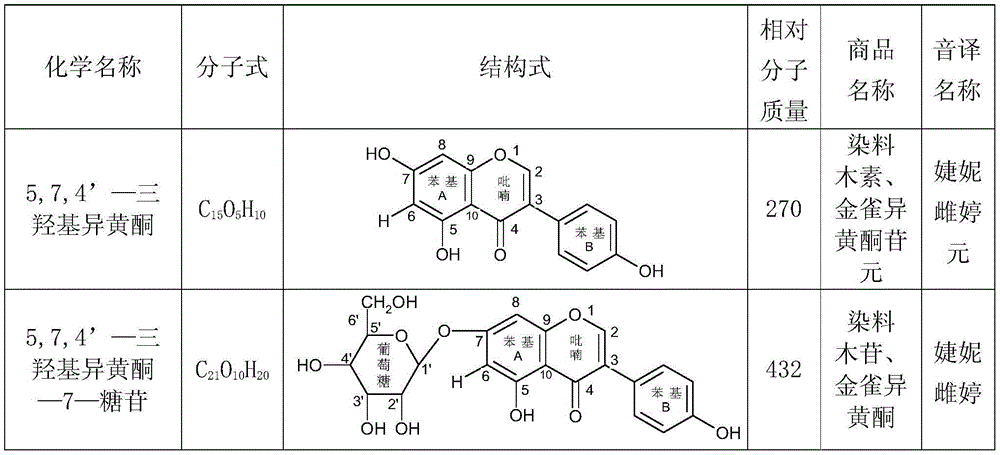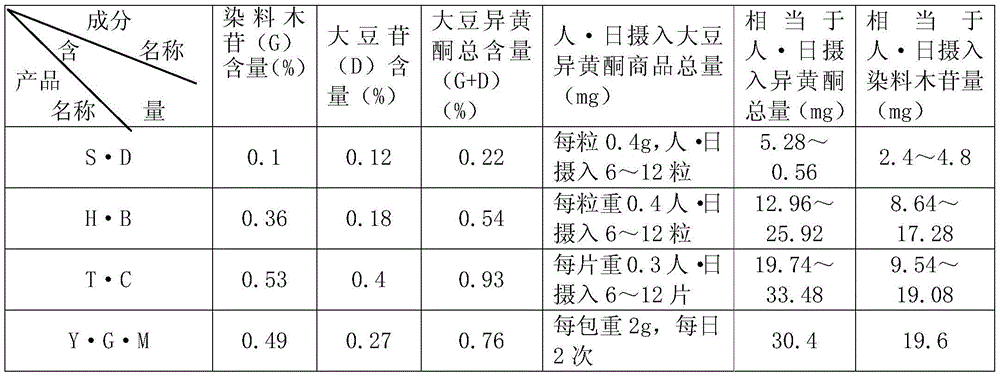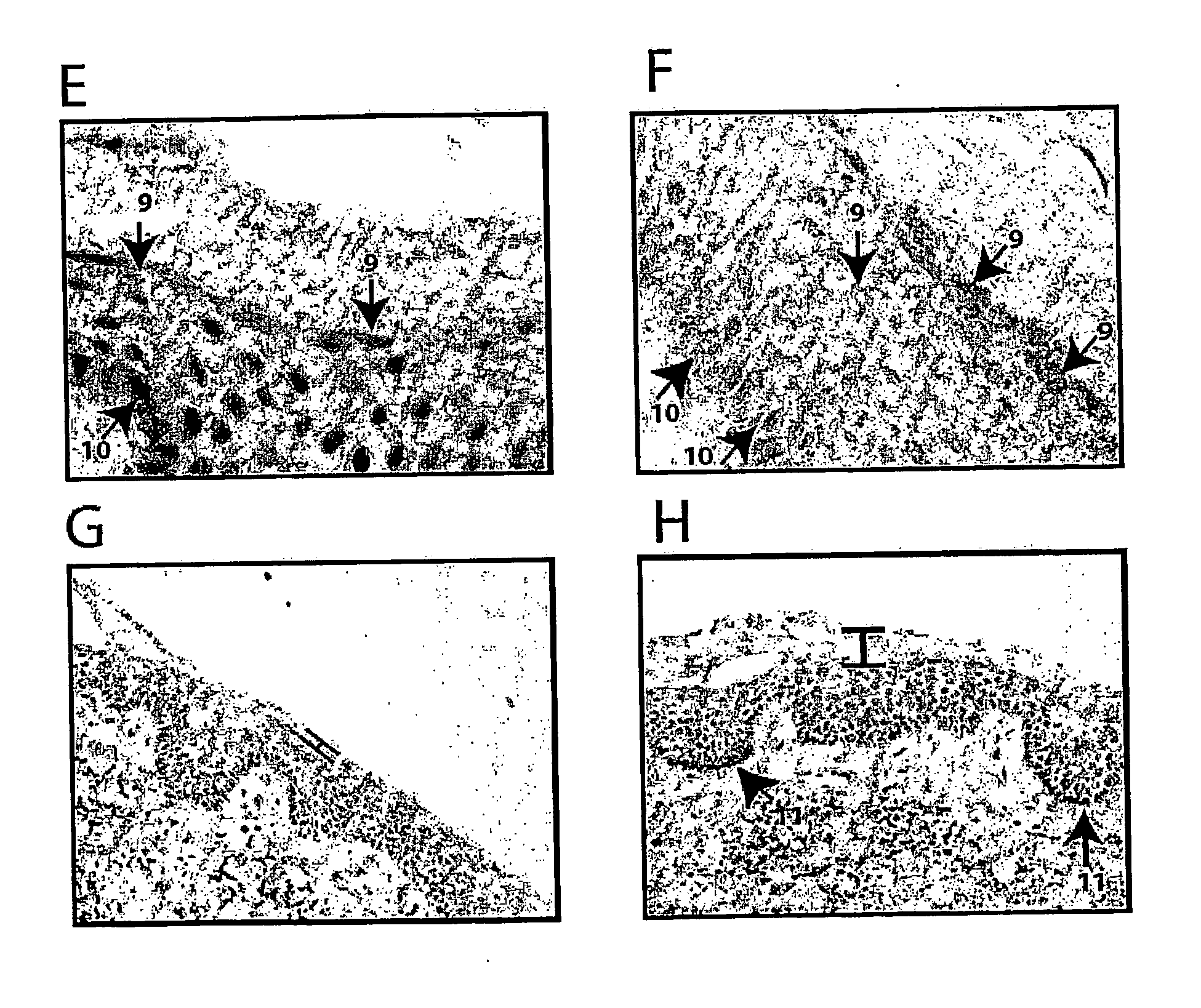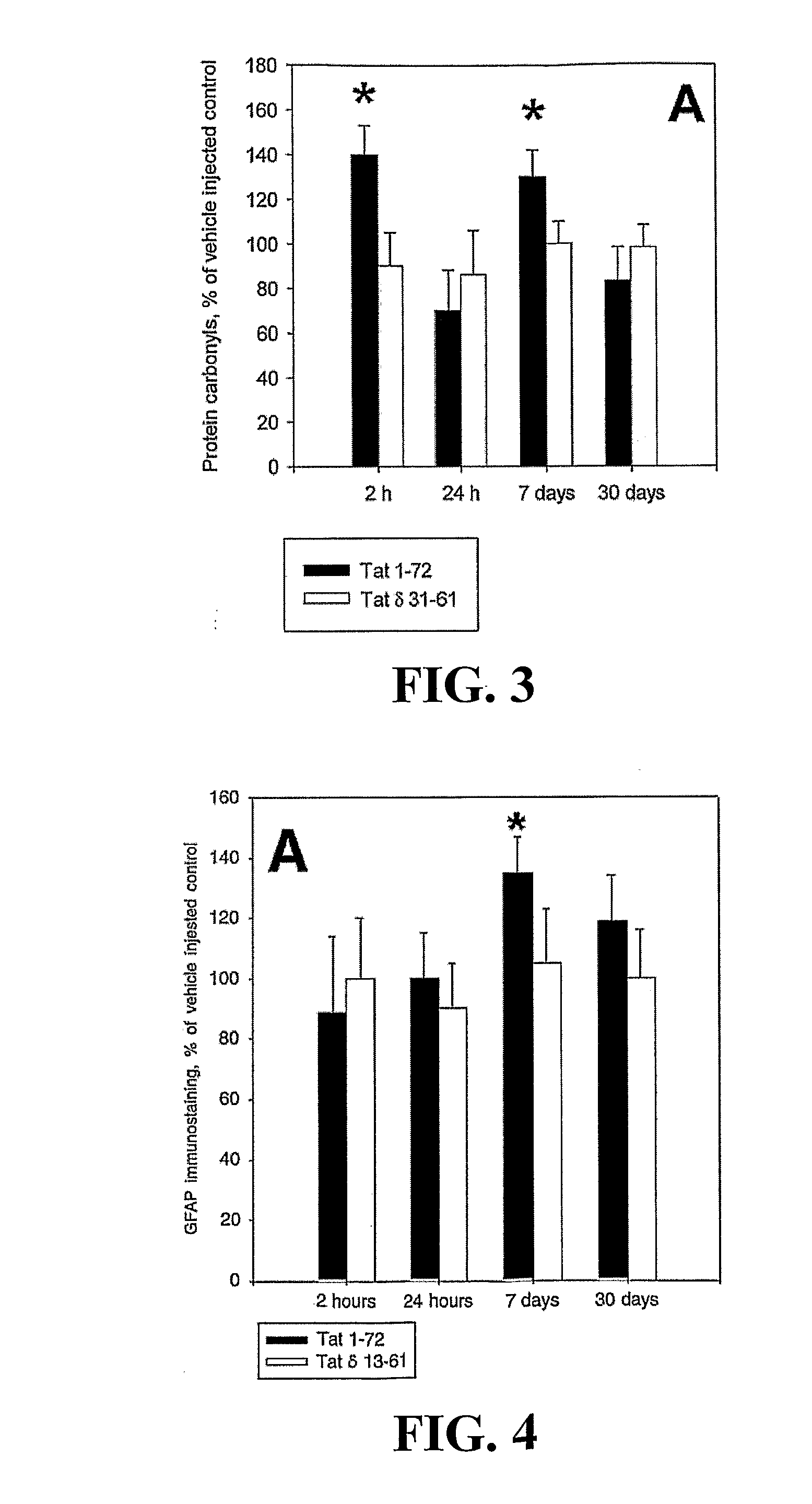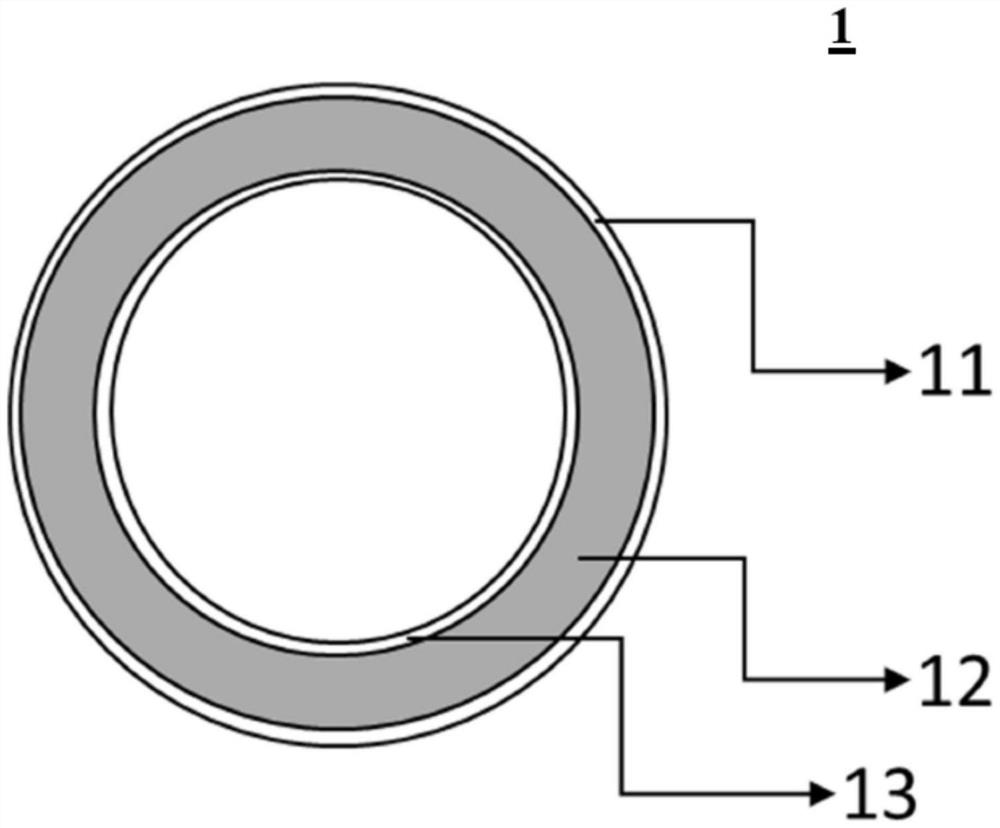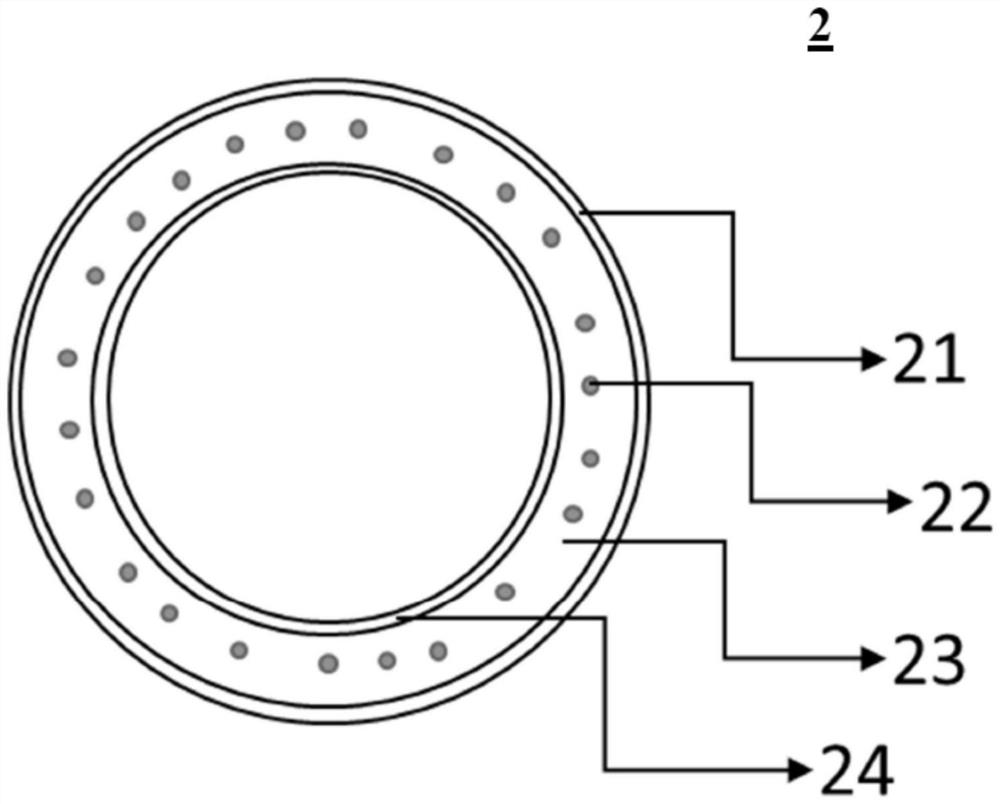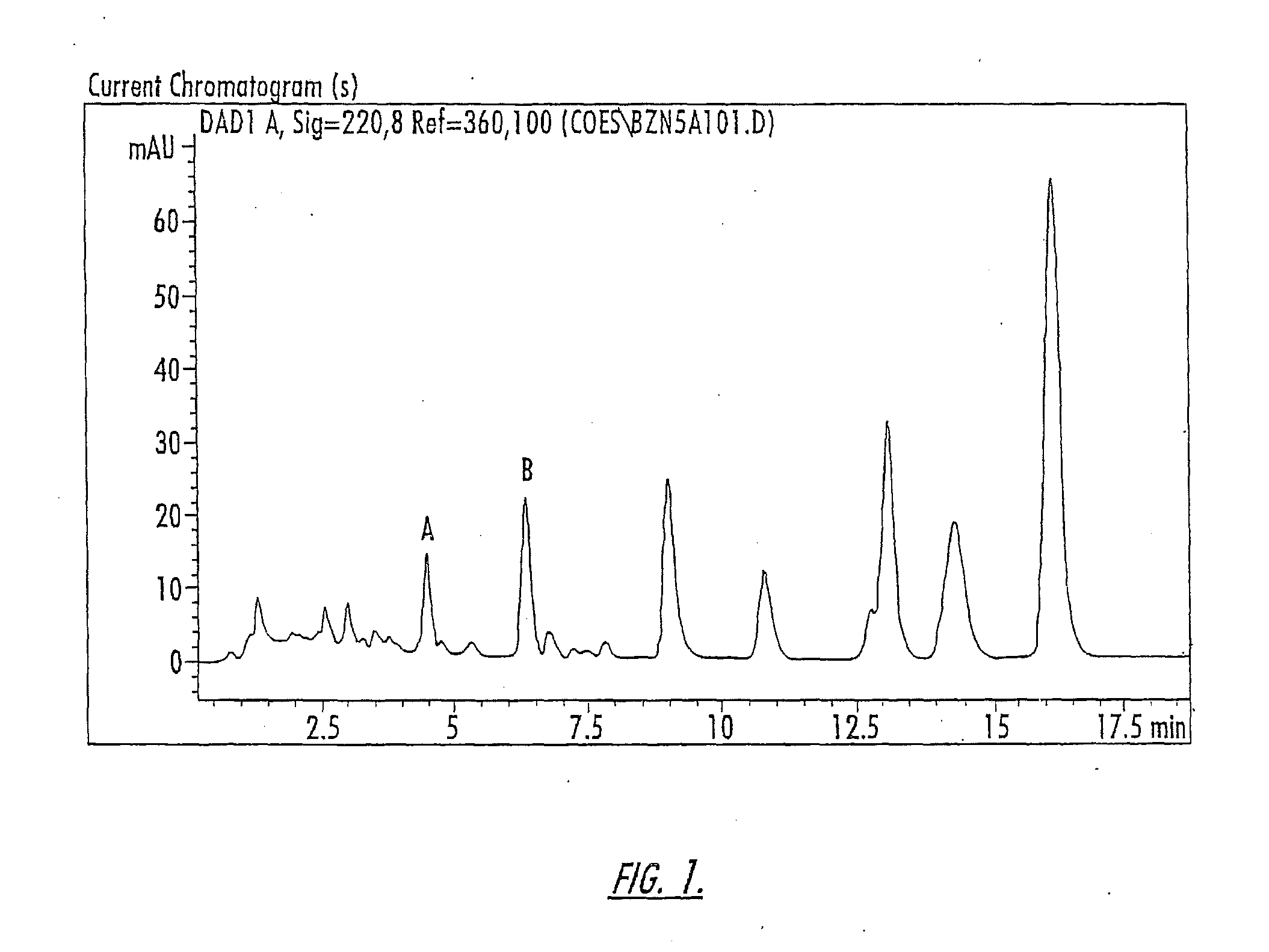Patents
Literature
Hiro is an intelligent assistant for R&D personnel, combined with Patent DNA, to facilitate innovative research.
39 results about "Estrogenic Compounds" patented technology
Efficacy Topic
Property
Owner
Technical Advancement
Application Domain
Technology Topic
Technology Field Word
Patent Country/Region
Patent Type
Patent Status
Application Year
Inventor
Because the primary route of exposure to these compounds is by consumption of phytoestrogenic plants, they are sometimes called "dietary estrogens". Mycoestrogens, estrogenic substances from fungi, are another type of xenoestrogen that are also considered mycotoxins.
Pharmaceutical compositions of conjugated estrogens and methods of analyzing mixtures containing estrogenic compounds
A composition of matter is provided having a mixture of active estrogenic compounds. The mixture is present in chemically pure form. The mixture includes salts of conjugated estrone, conjugated equilin, conjugated Δ8,9-dehydroestrone, conjugated 17α-estradiol, conjugated 17α-dihydroequilin, conjugated 17β-dihydroequilin, conjugated 17β-estradiol, conjugated equilenin, conjugated 17α-dihydroequilenin, and conjugated 17β-dihydroequilenin. The mixture also contains the same essential estrogenic compounds present in naturally derived equine conjugated estrogens. Drug products including the composition of matter are also provided, as are methods of using these drug products to treat mammals in need of treatment. Methods of analyzing mixtures containing conjugated estrogens are also provided.
Owner:DURAMED PHARMA
Estrogenic compounds and topical pharmaceutical formulations of the same
Novel estrogenic compounds of Formula I are provided.wherein the bond represented by the wavy line may be a single or double bond such that when the wavy line is a single bond, R1 is selected from the group consisting of hydrogen, sulfate and glucoronate or other esters, and when the wavy line is a double bond, R1 does not exist; R2 is lower alkyl; R3 may be selected from the group consisting of hydrogen, sulfate, or glucuronide or other esters; and R4 through R13 may independently be selected from the group consisting of hydrogen, hydroxy, ketone, lower alkyl, lower alkoxy, halogen, and carbonyl groups and R14 is selected from the group consisting of hydrogen, sulfate and glucoronide and other esters. When R1 is hydroxy, the hydroxy or ester substituent may have either an α or a β orientation. Compositions of matter including compounds of the present invention are also provided as are methods of treating mammals in need of treatment using compounds of the present invention.
Owner:DURAMED PHARMA
Methods and compositions for treating benign gynecological disorders
InactiveUS6960337B2Increased riskPrevent endometrial hyperplasiaOrganic active ingredientsBiocideDiseaseGynecology
An improvement in a method of treating benign gynecological disorders is described. In the method, treatment of a benign gynecological disorder with a composition comprised of a gonadotropin releasing hormone (GnRH) compound and an estrogenic compound, and optionally, an androgenic compound, is extended to premenopausal women who are not receiving an exogenously supplied progestin on a regular or periodic basis. Treatment in accord with the invention does not increase significantly the risk of endometrial hyperplasia. The method is also suitable for contraception.
Owner:BALANCE PHARMA
(3) and (6) substituted estrogenic compounds
Novel estrogenic compounds of Formula I are provided.wherein the bond represented by the wavy line may be a single or double bond such that when the wavy line is a single bond, R1 is selected from the group consisting of hydrogen, sulfate and glucoronate or other esters, and when the wavy line is a double bond, R1 does not exist; R2 is lower alkyl; R3 may be selected from the group consisting of hydrogen, sulfate, or glucuronide or other esters; and R4 through R13 may independently be selected from the group consisting of hydrogen, hydroxy, ketone, lower allyl, lower alkoxy, halogen, and carbonyl groups and R14 is selected from the group consisting of hydrogen, sulfate and glucoronide and other esters. When R1 is hydroxy, the hydroxy or ester substituent may have either an α or a β orientation. Compositions of matter including compounds of the present invention are also provided as are methods of treating mammals in need of treatment using compounds of the present invention.
Owner:DURAMED PHARMA
Therapeutic methods of using estrogen compositions
A method for preventing or treating a catamenial migrainous disorder in a female subject comprises administering to a vulvovaginal surface of the subject a pharmaceutical composition that is bioadhesive thereto and comprises at least one estrogenic compound in an amount of about 50 μg to about 1000 μg estradiol equivalent per unit dose of the composition. A related method comprises administering to a vulvovaginal surface of the subject a pharmaceutical composition comprising at least one estrogenic compound, wherein upon administration of the composition to the vulvovaginal surface, a decline in serum estradiol concentration during a luteal phase of a menstrual cycle is moderated.
Owner:DRAGTEK CORP
Estrogenic compounds and pharmaceutical formulations comprising the same
Novel estrogenic compounds of Formula I are provided.wherein the bond represented by the wavy line may be a single or double bond such that when the wavy line is a single bond, R1 is selected from the group consisting of hydrogen, sulfate and glucoronate or other esters, and when the wavy line is a double bond, R1 does not exist; R2 is lower alkyl; R3 may be selected from the group consisting of hydrogen, sulfate, or glucuronide or other esters; and R4 through R13 may independently be selected from the group consisting of hydrogen, hydroxy, ketone, lower alkyl, lower alkoxy, halogen, and carbonyl groups and R14 is selected from the group consisting of hydrogen, sulfate and glucoronide and other esters. When R1 is hydroxy, the hydroxy or ester substituent may have either an α or a β orientation. Compositions of matter including compounds of the present invention are also provided as are methods of treating mammals in need of treatment using compounds of the present invention.
Owner:DURAMED PHARMA
Nasal spray steroid formulation and method
The present invention relates to an improvement in a method of contraception, in treatment of benign gynecological disorders, and in hormone replacement. The improved method includes administering intranasally an estrogenic compound and an androgenic compound, and in some embodiments an optional progestin compound, in a once-daily bolus formulation comprised of the two or three steroids complexed with a cyclodextrin. An intranasal delivery system for administration of the formulation is also described.
Owner:BALANCE PHARMA
Estrogenic compounds in combination with progestogenic compounds in hormone-replacement therapy
ActiveUS8026228B2Suppress ovarian estrogenAvoid symptomsBiocideOrganic active ingredientsPresent methodMammal
One aspect of the present invention relates to a method of hormone replacement in mammals, which method comprises the oral administration of an estrogenic component and a progestogenic component to a mammal in an effective amount to prevent or treat symptoms of hypoestrogenism, wherein the estrogenic component is selected from the group consisting of substances represented by the above formula in which formula R1, R2, R3, R4 independently are a hydrogen atom, a hydroxyl group or an alkoxy group with 1-5 carbon atoms; each of R5, R6, R7 is a hydroxyl group; and no more than 3 of R1, R2, R3, R4 are hydrogen atoms; precursors capable of liberating a substance according to the aforementioned formula when used in the present method; and mixtures of one or more of the aforementioned substances and / or precursors. Another aspect of the invention concerns a pharmaceutical kit comprising oral dosage units that contain the aforementioned estrogenic component and a progestogenic component as well as an androgenic component.
Owner:ESTETRA SRL
Nasal spray formulation and method
InactiveUS20060008420A1Prevent signAvoid symptomsOrganic active ingredientsPeptide/protein ingredientsCyclodextrinNasal spray
A nasal spray formulation for use in female contraception or in the treatment of benign gynecological disorders is described. The nasal preparation is comprised of a GnRH compound and an estrogenic compound in the form of a water-soluble complex with a water-soluble cyclodextrin. The preparation effectively suppresses ovarian estrogen and progesterone production, and prevents signs and symptoms of estrogen deficiency, without a significant increase in the risk of endometrial hyperplasia.
Owner:BALANCE PHARMA
Nasal spray steroid formulation and method
The present invention relates to an improvement in a method of contraception, in treatment of benign gynecological disorders, and in hormone replacement. The improved method includes administering intranasally an estrogenic compound and an androgenic compound, and in some embodiments an optional progestin compound, in a once-daily bolus formulation comprised of the two or three steroids complexed with a cyclodextrin. An intranasal delivery system for administration of the formulation is also described.
Owner:BALANCE PHARMA
Estrogen compositions and therapeutic methods of use thereof
InactiveUS20070036848A1Provide benefitsOrganic active ingredientsUrinary disorderIntravaginal administrationGynecology
A pharmaceutical composition comprises at least one estrogenic compound, the composition being adapted for application in a unit dose amount to a vulvovaginal surface and having at least one nonlipoidal internal phase and at least one lipoidal external phase that is bioadhesive to the vulvovaginal surface, wherein the at least one estrogenic compound is present in an amount of about 5 to about 1000 μg estradiol equivalent per unit dose of the composition, and upon application of the composition to the vulvovaginal surface the at least one estrogenic compound is released over a period of about 3 hours to about 30 days. The composition is useful for vulvovaginal administration to treat atrophic vaginitis or a disorder associated therewith, for example in a menopausal or postmenopausal woman. A method for treating a hypoestrogenism-related condition of the urogenital system of a female patient comprises intravaginal administration of at least one estrogenic compound according to a treatment regimen wherein a series of compositions releasing a progressively increasing daily amount of the at least one estrogenic compound is administered over a period of at least about 1 month.
Owner:DRAGTEK CORP
Methods and compositions for treating benign gynecological disorders
InactiveUS20060013776A1Increased riskPrevent endometrial hyperplasiaBiocideOrganic active ingredientsDiseaseGynecological disorders
An improvement in a method of treating benign gynecological disorders is described. In the method, treatment of a benign gynecological disorder with a composition comprised of a gonadotropin releasing hormone (GnRH) compound and an estrogenic compound, and optionally, an androgenic compound, is extended to premenopausal women who are not receiving an exogenously supplied progestin on a regular or periodic basis. Treatment in accord with the invention does not increase significantly the risk of endometrial hyperplasia. The method is also suitable for contraception.
Owner:BALANCE PHARMA
Method for detecting concentration of estrogen or estrogenic-like compound
ActiveCN105866441AFix interferenceAccurate assessment levelBiological testingEstrogenic EffectsRisk assessment
The invention discloses a method for detecting concentration of an estrogen or estrogenic-like compound. The invention discloses a method for detecting the concentration of the compound having estrogenic effect in a sample. The method for detecting the concentration of the compound having estrogenic effect in the sample comprises a step of establishing an estrogen compound concentration-estrogen effect relation curve, wherein, the step comprises a process of preparing two-hybrid yeast saccharomycete liquid of two-hybrid yeast saccharomycete in a logarithmic phase. The method provides the reliable technical means for toxicity detection and risk assessment of environment mixing pollutants.
Owner:RES CENT FOR ECO ENVIRONMENTAL SCI THE CHINESE ACAD OF SCI
Estrogenic compounds and their methods of use
Isolated compounds and combinations of isolated compounds isolated from Epimedium grandiflorum Morr. are estrogenic, and can be used to treat one or more symptoms of menopause and / or ER-positive cancer. The compounds and combinations may be prepared as pharmaceutical compositions for administration to mammals, such as humans, for the treatment of solid cancers, such as epithelial cancers. Such epithelial cancers include breast cancer, uterine cancer, cervical cancer, ovarian cancer, vulvar cancer, endometrial cancer.
Owner:BIONOVO
Mass spectrometry assay for estrogenic compounds
ActiveUS20160377636A1Facilitate desorptionGood removal effectComponent separationParticle spectrometer methodsAnalyteChemical compound
Methods are provided for detecting the amount of one or more HRT panel analytes (i.e., estrone (E1), estrone sulfate (E1s), 17α-estradiol (E2a), 17β-estradiol (E2b), estradiol sulfate (E2s), estriol (E3), equilin (EQ), 17α-dihydroequilin (EQa), 17β-dihydroequilin (EQb), Equilenin (EN), 17α-dihydroequilenin (ENa), 17β-dihydroequilenin (ENb), and Δ8,9-dehydroestrone (dE1)) in a sample by mass spectrometry. The methods generally involve ionizing one or more HRT panel analytes in a sample and quantifying the generated ions to determine the amount of one or more HRT panel analytes in the sample. In methods where amounts of multiple HRT panel analytes are detected, the amounts of multiple analytes are detected in the same sample injection.
Owner:QUEST DIAGNOSTICS INVESTMENTS INC
Pharmaceutical product and analysis model for hormone replacement therapy for women and prevention of some cancers and uterine myomas
The present disclosure describes a study of estrogenic activity present in various plant species, selectively inducing some but not all estrogenic responses in the uterus. Prepubertal female rats were treated sequentially with various extracts or decoctions of different plant species or its vehicle, followed 1 h later by treatment with estradiol-17β (E) or its solvent. Uteri were excised under anesthesia and histologically processed for eosinophil quantification and morphometric evaluation of various uterine responses to estrogen, at 6 or 24 h after hormone or vehicle treatment. Besides extracts or decoctions, pure phytoestrogens were also used. Additionally, human mammary cancer cells MCF-7 or MDAMB-231 were cultured in presence of the extract (or decoction), E, both or solvent and cell proliferation was evaluated. Various extracts or decoction displayed selective estrogenic and / or antiestrogenic action for some but not all parameters of estrogen stimulation in the uterus and inhibited growth of human mammary cells in culture or antagonized the estrogen-induced increase in their growth. Present results reveal, for the first time, a dissociation of responses to estrogen by phytoestrogens, suggesting its possible therapeutic application as estrogenic compounds not inducing cell proliferation and reveal the anticancerous effect of some of the extracts with possible therapeutic relevance. The dissociation of responses to estrogen additionally suggest therapeutic applications in estrogen-related diseases (for instance, premenstrual syndrome, endometriosis, etc.); the inhibition of eosinophil degranulation suggest an application in diseases related to eosinophils (hypereosinophilic syndrome, allergic and hypersensitivity diseases).
Owner:CHERNIKALIFE +1
Pharmaceutical product and analysis model for hormone replacement therapy for women and prevention of some cancers and uterine myomas
The present disclosure describes a study of estrogenic activity present in various plant species, selectively inducing some but not all estrogenic responses in the uterus. Prepubertal female rats were treated sequentially with various extracts or decoctions of different plant species or its vehicle, followed 1 h later by treatment with estradiol-17β (E) or its solvent. Uteri were excised under anesthesia and histologically processed for eosinophil quantification and morphometric evaluation of various uterine responses to estrogen, at 6 or 24 h after hormone or vehicle treatment. Besides extracts or decoctions, pure phytoestrogens were also used. Additionally, human mammary cancer cells MCF-7 or MDAMB-231 were cultured in presence of the extract (or decoction), E, both or solvent and cell proliferation was evaluated. Various extracts or decoction displayed selective estrogenic and / or antiestrogenic action for some but not all parameters of estrogen stimulation in the uterus and inhibited growth of human mammary cells in culture or antagonized the estrogen-induced increase in their growth. Present results reveal, for the first time, a dissociation of responses to estrogen by phytoestrogens, suggesting its possible therapeutic application as estrogenic compounds not inducing cell proliferation and reveal the anticancerous effect of some of the extracts with possible therapeutic relevance. The dissociation of responses to estrogen additionally suggest therapeutic applications in estrogen-related diseases (for instance, premenstrual syndrome, endometriosis, etc.); the inhibition of eosinophil degranulation suggest an application in diseases related to eosinophils (hypereosinophilic syndrome, allergic and hypersensitivity diseases).
Owner:CHERNIKALIFE +1
Kit and method for determining multiple estrogens in dried blood spot
The invention belongs to the technical field of hormone detection, and relates to a kit and a method for determining various estrogens in dried blood spots. Aiming at the technical problems that in the prior art, estrogen exists at a trace level in a biological sample and a human body, the content of estrogen in a dried blood spot sample is extremely low, the polarity of estrogen compounds is relatively small, the ionization efficiency in ESI and APCI sources in a mass spectrum is not high, and the direct detection sensitivity is not high, the invention provides a kit for determining various estrogens in a dried blood spot. Comprising a derivatization reagent, a first extraction agent and a second extraction agent, and the trace estrogen in the dried blood spot can be rapidly, simply and accurately detected by combining extraction and derivatization pretreatment with ultra-high performance liquid chromatography-tandem mass spectrometry. The invention further provides a method for determining the multiple estrogens in the dried blood spot, the estrogens are extracted from the dried blood spot by using the first extraction agent and then derivatized, and the derived estrogens are extracted again by using the second extraction agent, so that the flux is increased, and the analysis efficiency is improved.
Owner:HEFEI NOVA-MS BIOTECH MEDICAL EQUIP CO LTD
Method for evaluating PBDEs xenoestrogen effect by using gobiocyprisrarus gene expression
InactiveCN101875969AObvious estrogen-like effectMicrobiological testing/measurementXenoestrogenBiology
The invention discloses a method for evaluating a PBDEs xenoestrogen effect by using gobiocyprisrarus gene expression, and relates to the evaluation of the influence of water environmental pollution on hydrobios. In the method, the expression quantity of CYP19b genes in the brain tissue and gonad tissue of gobiocyprisrarus cultivated in water with different amounts of PBDEs is detected to illustrate that the PBDEs content of the water is higher, the xenoestrogen effect is more obvious, so that the method for evaluating the PBDEs xenoestrogen effect is obtained.
Owner:INST OF AQUATIC LIFE ACAD SINICA
Treatment of osteoporosis
A method for the prevention or treatment of postmenopausal osteoporosis by initiating the treatment with a low close of an estrogenic compound and increasing the dose of the estrogenic compound after the initiation period.
Owner:ORION CORPORATION
Treatment of osteoporosis
Owner:ORION CORPORATION
Recombinant yeast for detecting estrogenic compound and construction method of recombinant yeast
ActiveCN106754444ASynthesis is stable and efficientQuick checkFungiMicrobiological testing/measurementBiotechnologyGreen fluorescent protein
The invention discloses a recombinant yeast for detecting an estrogenic compound and a construction method of the recombinant yeast. A recombinant bacterium provided by the invention is a recombinant bacterium obtained by expressing an estrogenic receptor beta gene, a resistance screening gene expression cassette and 3 serial ERE (Estrogen Response Element) gene and report gene expression cassettes in saccharomyces cerevisiae. The recombinant yeast constructed by the method can be used for stably and efficiently synthesizing GFP (Green Fluorescent Protein) in the presence of the estrogenic compound; the expression amount of the GFP and the concentration of the estrogenic compound form a direct proportion; EC50 of 17 beta estradiol is 3.25pM and is about 20 times as much as that of an existing document report. The recombinant yeast disclosed by the invention lays a foundation for rapidly and sensitively detecting the estrogenic compound in the environment.
Owner:中国农业科学院研究生院
Chocolate supplemented with natural botanical xenoestrogen and preparation method thereof
InactiveCN105594949AOvercome bitternessSolve inefficiencyCocoaFood ingredient functionsSOY ISOFLAVONESCasting mold
A chocolate supplemented with natural botanical xenoestrogen and a preparation method thereof. Each piece of chocolate contains a total sum of 20-30mg of soybean genistin and genistein. The chocolate production process includes: preparing materials; testing and confirming the total weight of soybean genistin and genistein in the soy isoflavones; calculating and determining the amount of soy isoflavones according to the total amount of material addition, weight of 5-10g of each piece and total weight of soy genistein and genistin in each piece; mixing and grinding; refining; and then adjusting temperature, casting mold, hardening and demoulding to obtain the chocolate supplemented with natural botanical xenoestrogen. The present invention has the positive meanings of providing an ideal carrier for the soy isoflavones, confirming the natural botanical xenoestrogens of soy genistin and genistein in soy isoflavones, determining the appropriate content of natural botanical estrogen for daily intake by the consumer, and providing a feeding amount formula for the chocolate with different amount of bulk materials, isoflavones with different contents of xenoestrogen, and different piece weight.
Owner:CHANGCHUN UNIV +1
The Use of Oestrogen Applied to the Penis to Reduce HIV Infections
InactiveUS20110201585A1Reducing and inhibiting riskReduce viral loadHalogenated hydrocarbon active ingredientsCosmetic preparationsMetaboliteAgonist
A method of reducing or inhibiting the risk of infection from sexually transmitted viral infections (STIs), such as HIV and HPV, comprising the topical administration of oestrogenic compounds, analogues or metabolites thereof or oestrogen agonists to a human penis. A method to increase keratinisation of the penile epithelium is also provided. Suitable formulations are also provided.
Owner:SHORT ROGER +1
Recombinant estrogen receptor fluorescent two-hybrid yeast as well as preparation method and application
InactiveCN104498376ABypass the limitation of low sensitivityEasy to operateFungiFusion with DNA-binding domainFluorescenceGenotype
The invention discloses recombinant estrogen receptor fluorescent two-hybrid yeast as well as a preparation method and an application thereof. The invention discloses recombinant estrogen receptor fluorescent two-hybrid yeast, which is obtained by introducing the encoding gene of fusion protein containing an estrogen receptor and a DNA combination domain and the encoding gene of fusion protein containing an estrogen receptor nuclear receptor coactivator and a transcription activating domain into fluorescent yeast Yluc with genotype of MATalpha, ura 3-5, ade 2-101 trp 1-901, leu 2-3, 112, gal4detla, met-, gal80 delta, URA::GALiUAS-GAL1TATA-Luc. The yeast disclosed by the invention is stable in gene character, is easy to culture and screen and can be used for detecting xenoestrogen compounds or estrogenic compounds in environment, and the detection method is simple, convenient and quick and can be suitable for the requirements of high-throughput quick detection.
Owner:RES CENT FOR ECO ENVIRONMENTAL SCI THE CHINESE ACAD OF SCI
Dopamine Receptor Agonists in the Treatment and Prevention of Hiv-Induced Dementia
Provided herein is a method of protecting a neuron from dysfunction induced by an HIV neurotoxin, comprising contacting the cell with a therapeutically effective dose of a dopamine D1 receptor agonist. Also provided is a method of treating or preventing HIV-1 associated dementia (HAD) in a subject in need of such treatment or prevention, comprising administering to the subject a therapeutically effective dose of a dopamine D1 receptor agonist and estrogenic compound.
Owner:UNIVERSITY OF SOUTH CAROLINA
Drug delivery system for ultra-low dose estrogen combinations and methods and uses thereof
PendingCN113365634AOrganic active ingredientsSuppositories deliveryPharmaceutical SubstancesContraception use
The invention relates to a drug delivery system for contraception including a steroidal estrogenic compound, a steroidal progestogenic compound or a combination thereof for the purposes of contraception in a subject, and provides for an ultra-low dose delivery of a steroidal estrogenic compound. The invention also relates to a method of contraception using the drug delivery system and method of manufacturing the drug delivery system.
Owner:루핀인코포레이티드
Method for brewing estrogen health wine by using natural plant
InactiveCN102191160BImprove the finishIncrease elasticityAlcoholic beverage preparationEndocrine system disorderDiseasePhysiology
The invention relates to a method for brewing a health wine, in particular to a grape medicated wine which is brewed by using a natural plant and contains plant estrogen. When a female becomes middle-aged or old, the secretory volume of internal estrogen reduces year by year, the glossiness and elasticity of skin decreases, osteoporosis, adiposis and vessel wall incrassation appear, and the vascular permeability reduces, so the organism starts to age gradually. If artificial estrogen is supplemented, the estrogen is accumulated in the human body and causes other malignant diseases. The natural plant estrogen has double functions of xenoestrogen and estrogenic activity resistance on the human body, quantitative supplementation of the natural plant estrogen everyday can play a role in balancing the internal estrogen; when the internal estrogen content is too low, the natural plant estrogen can increase the internal estrogen; and when the estrogen content is too high, the natural plant estrogen is discharged to reduce the estrogen to achieve the balance of the internal estrogen level and achieve the functions of delaying senility and eliminating diseases to prolong life.
Owner:张玉蓉
Novel Estrogenic Compounds
Novel estrogenic compounds of Formula I are provided.wherein the bond represented by the wavy line may be a single or double bond such that when the wavy line is a single bond, R1 is selected from the group consisting of hydrogen, sulfate and glucoronate or other esters, and when the wavy line is a double bond, R1 does not exist; R2 is lower alkyl; R3 may be selected from the group consisting of hydrogen, sulfate, or glucuronide or other esters; and R4 through R13 may independently be selected from the group consisting of hydrogen, hydroxy, ketone, lower alkyl, lower alkoxy, halogen, and carbonyl groups and R14 is selected from the group consisting of hydrogen, sulfate and glucoronide and other esters. When R1 is hydroxy, the hydroxy or ester substituent may have either an α or a β orientation. Compositions of matter including compounds of the present invention are also provided as are methods of treating mammals in need of treatment using compounds of the present invention.
Owner:DURAMED PHARMA
Features
- R&D
- Intellectual Property
- Life Sciences
- Materials
- Tech Scout
Why Patsnap Eureka
- Unparalleled Data Quality
- Higher Quality Content
- 60% Fewer Hallucinations
Social media
Patsnap Eureka Blog
Learn More Browse by: Latest US Patents, China's latest patents, Technical Efficacy Thesaurus, Application Domain, Technology Topic, Popular Technical Reports.
© 2025 PatSnap. All rights reserved.Legal|Privacy policy|Modern Slavery Act Transparency Statement|Sitemap|About US| Contact US: help@patsnap.com


